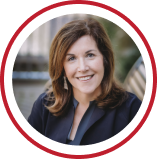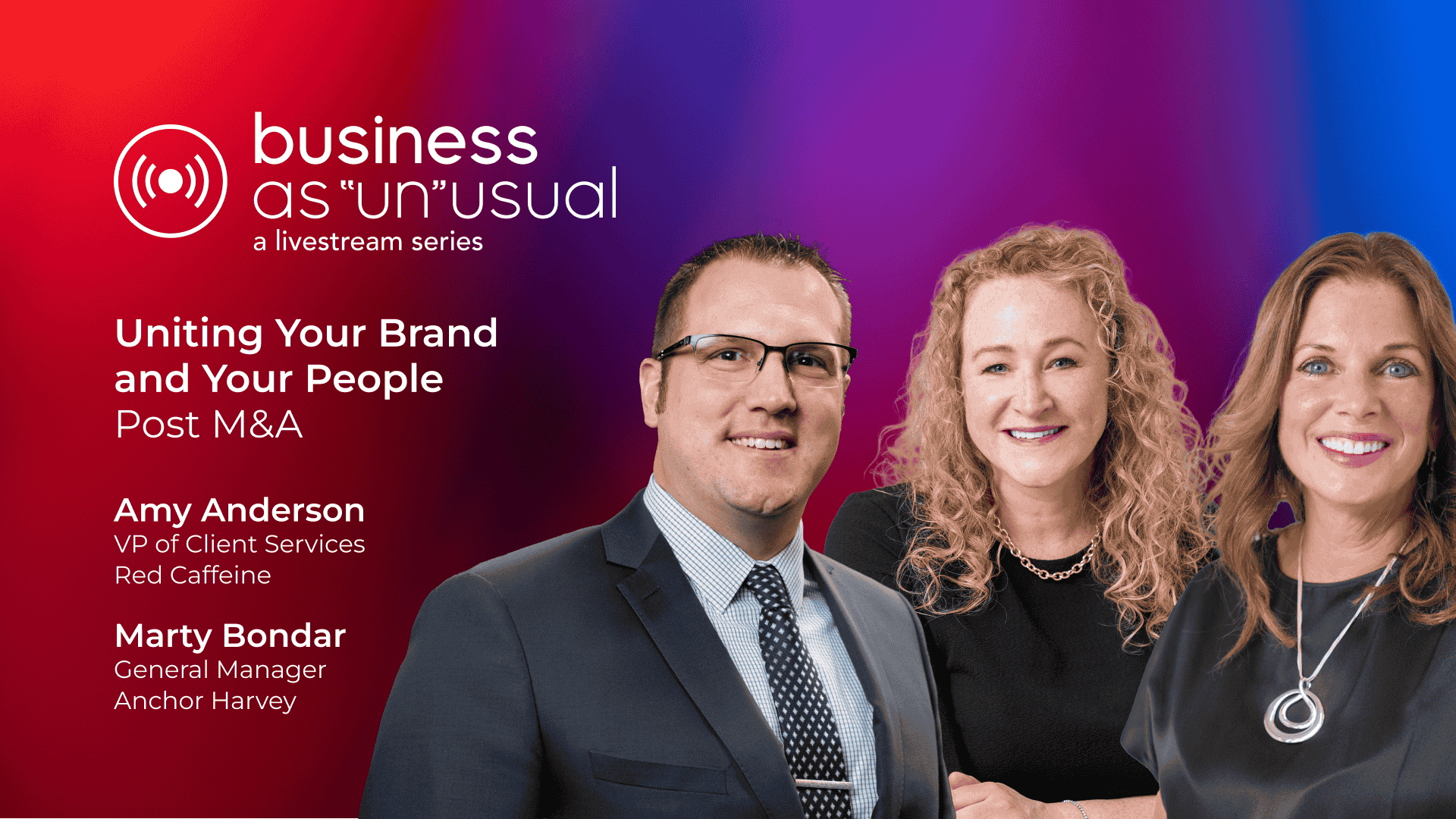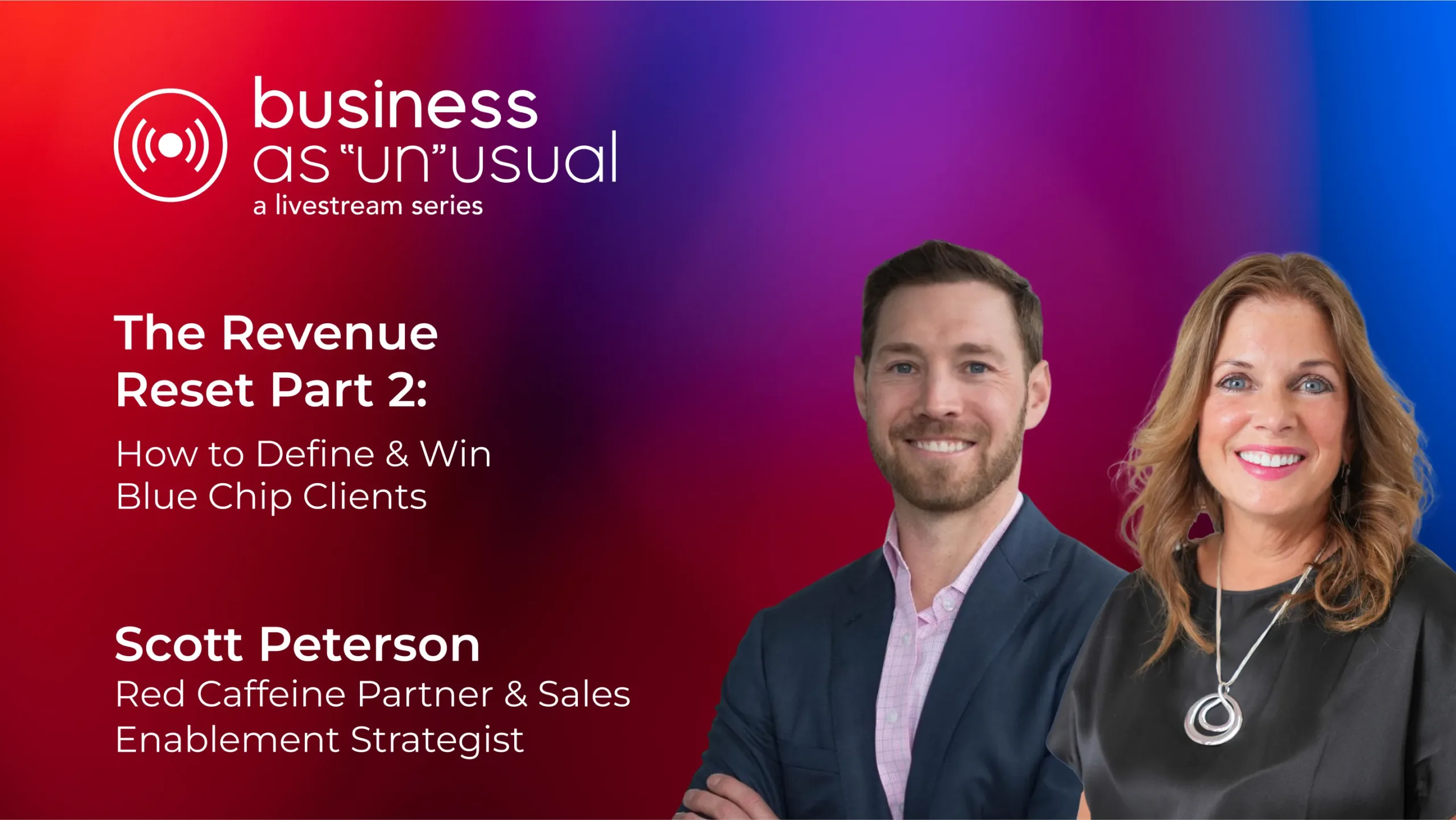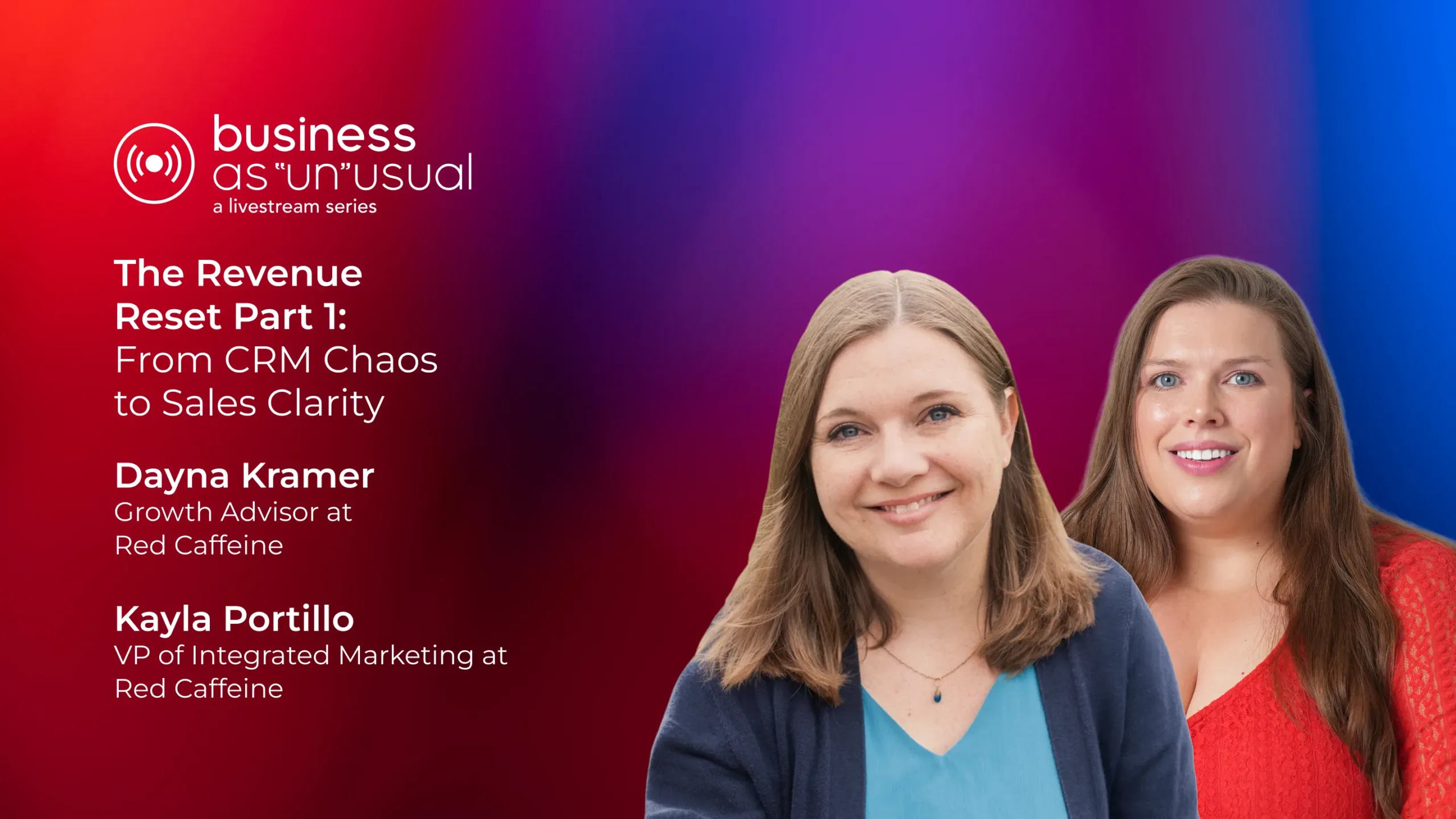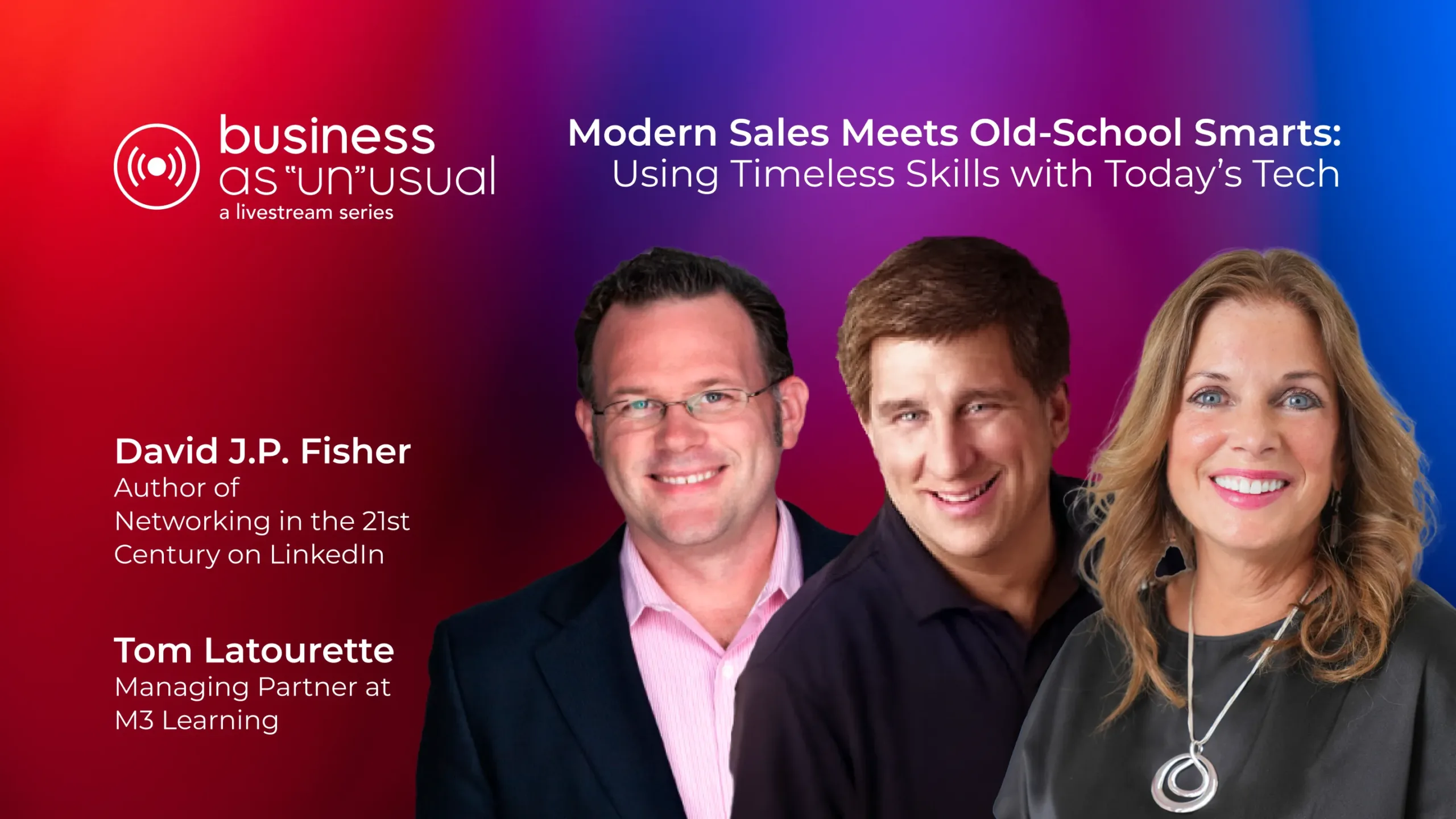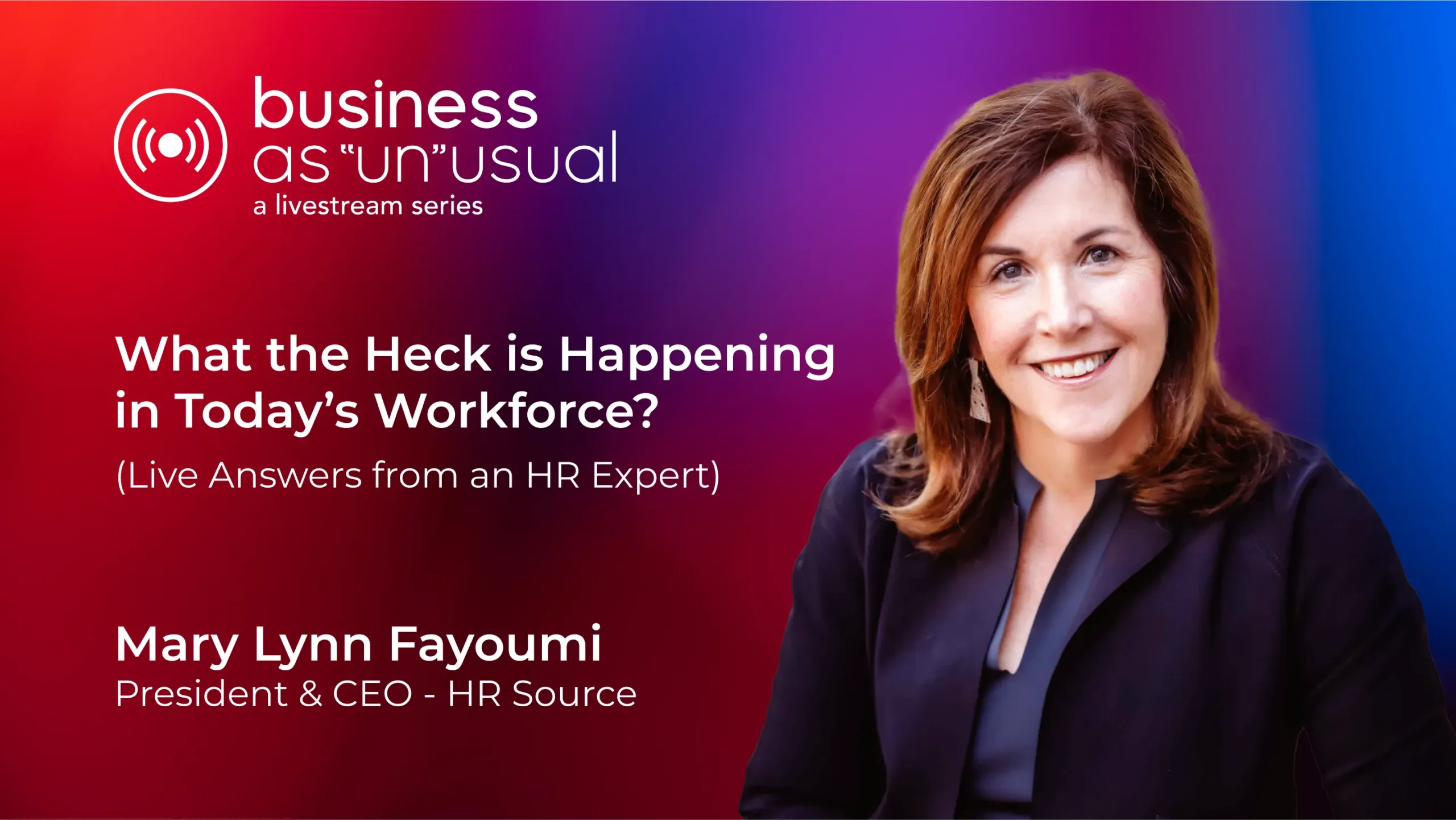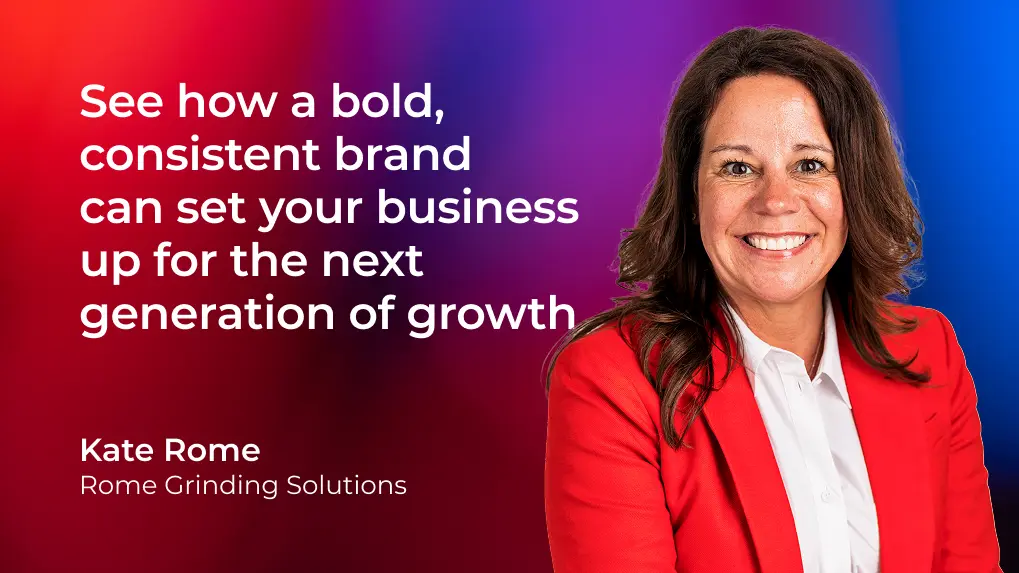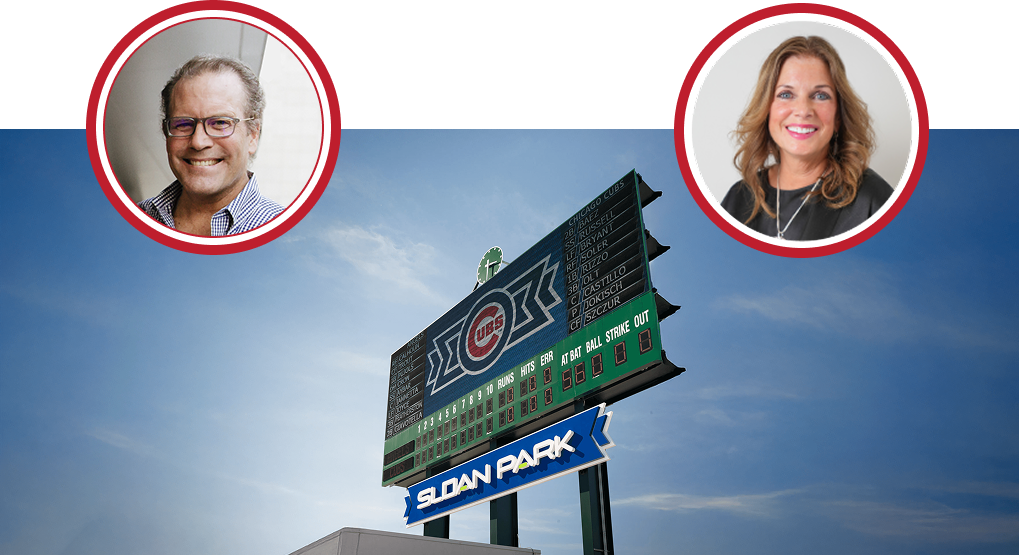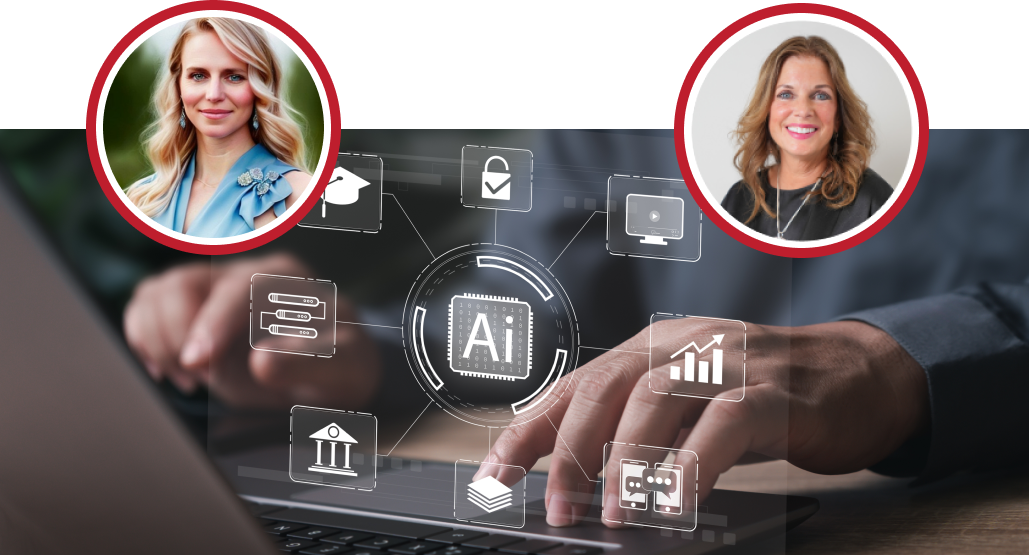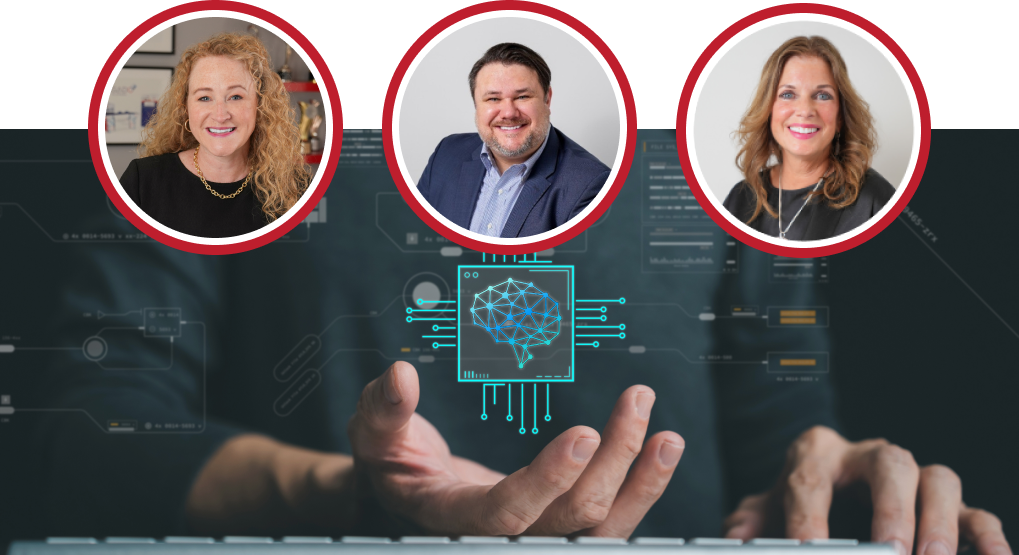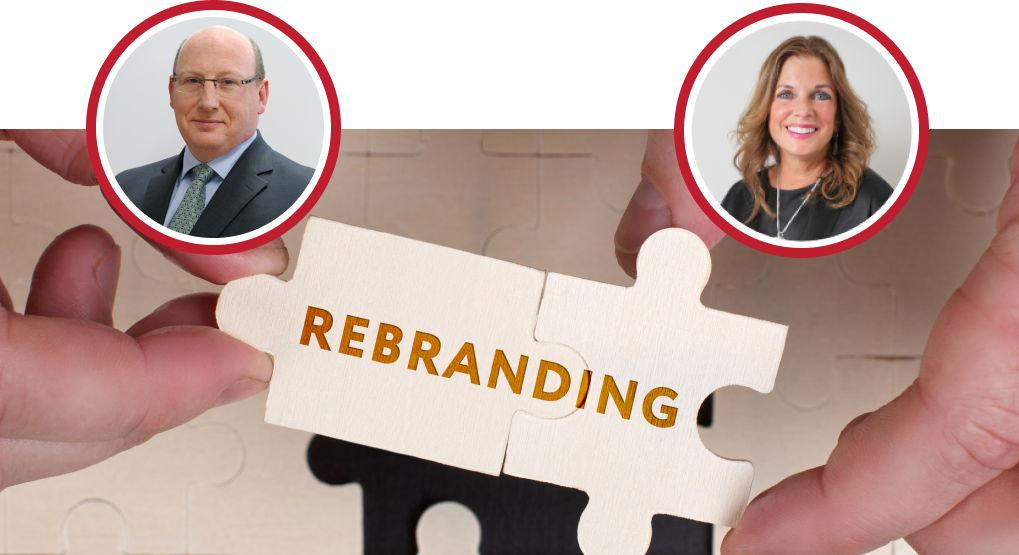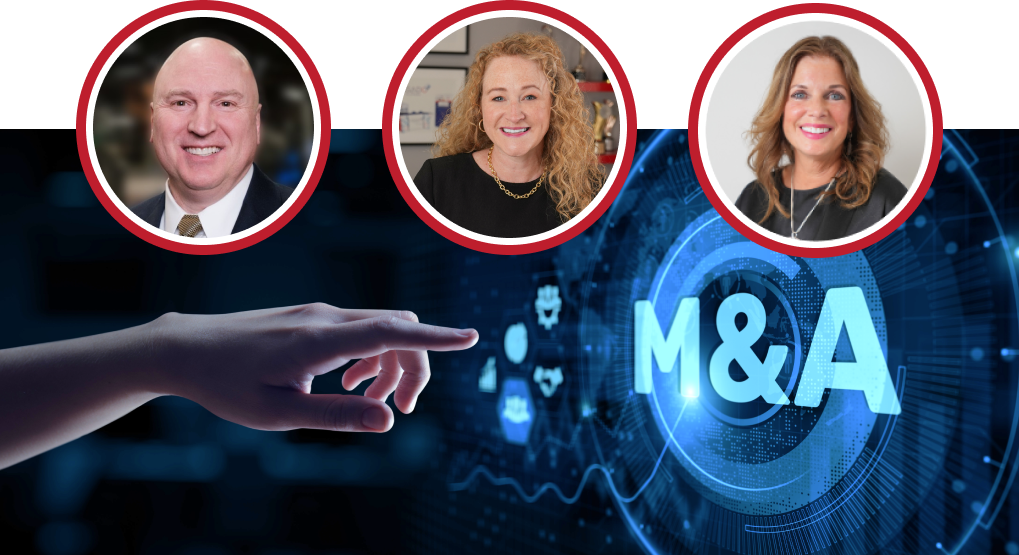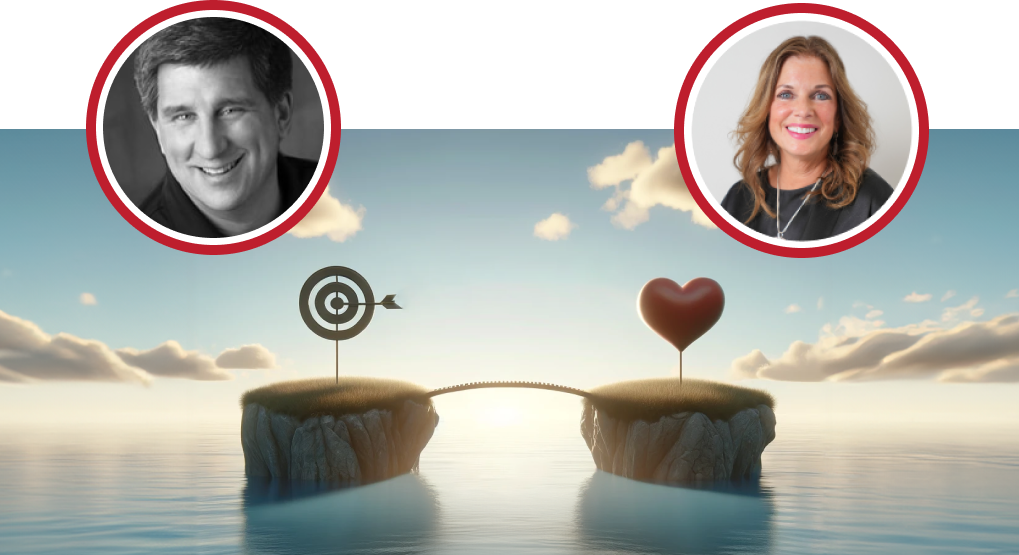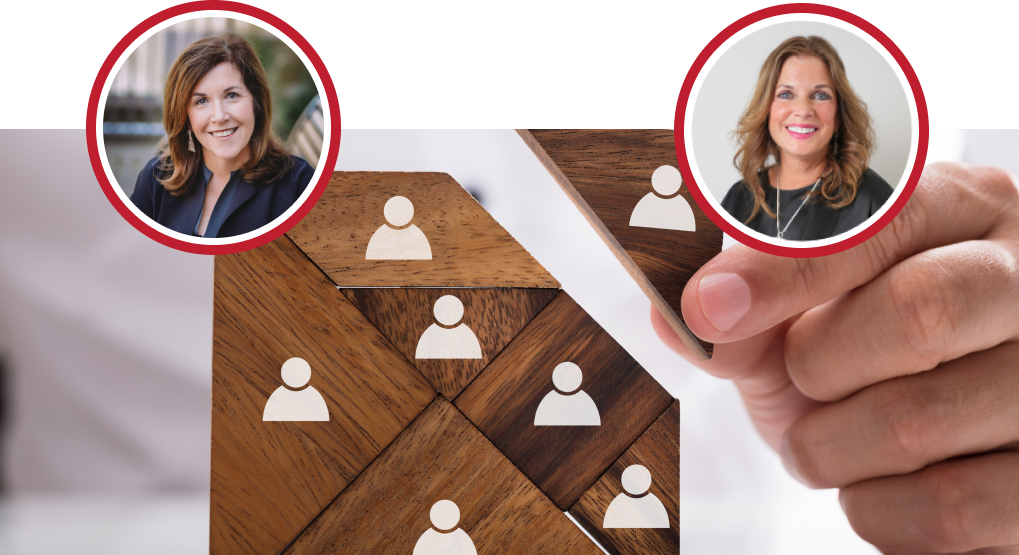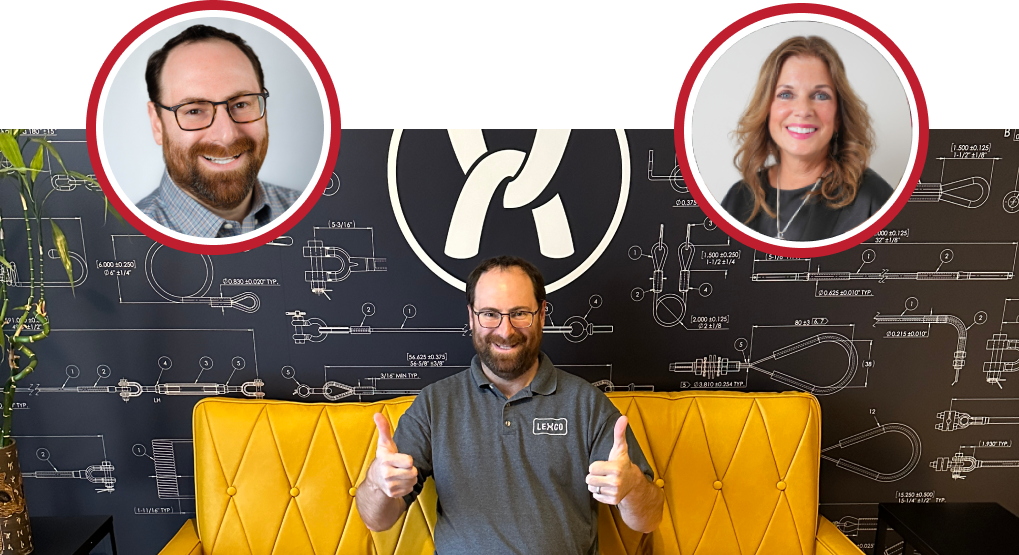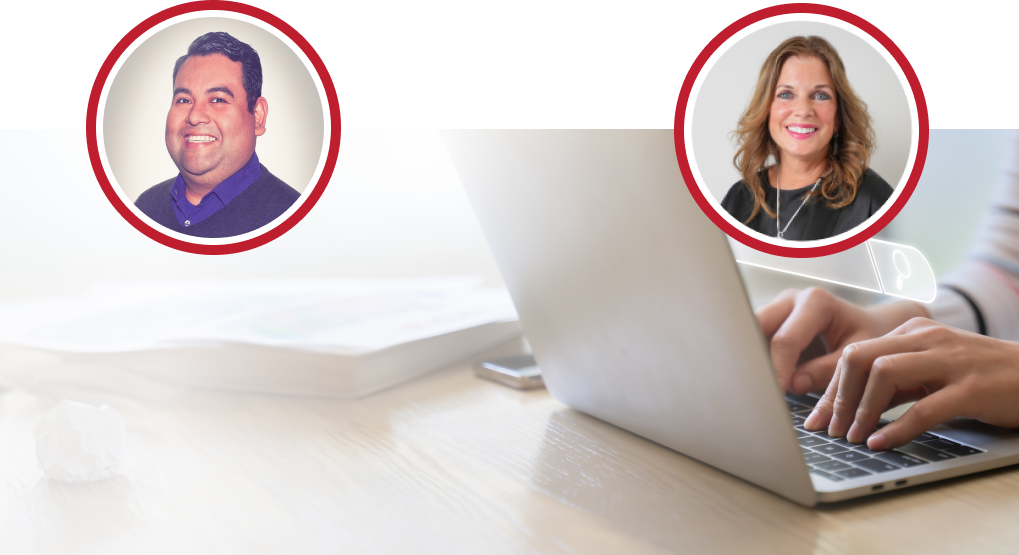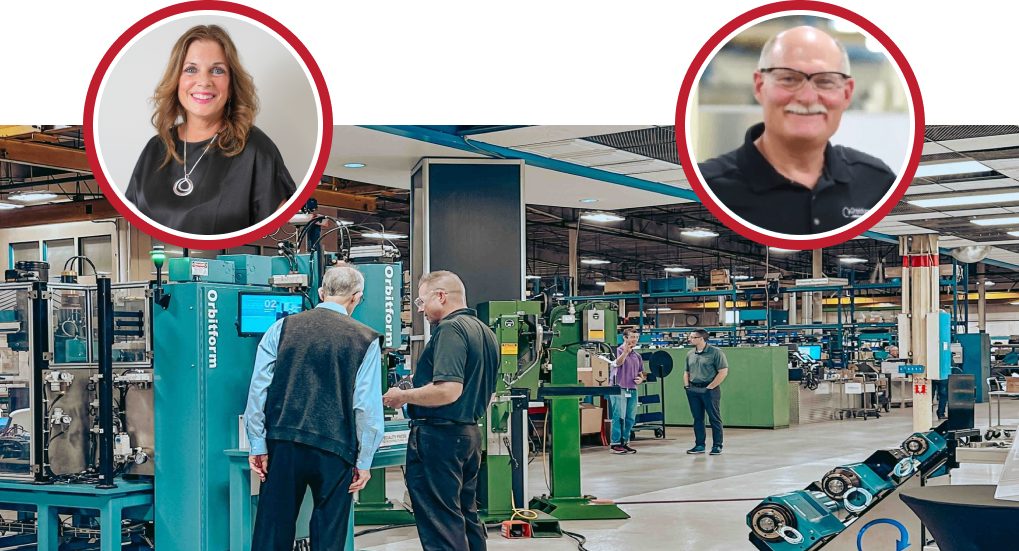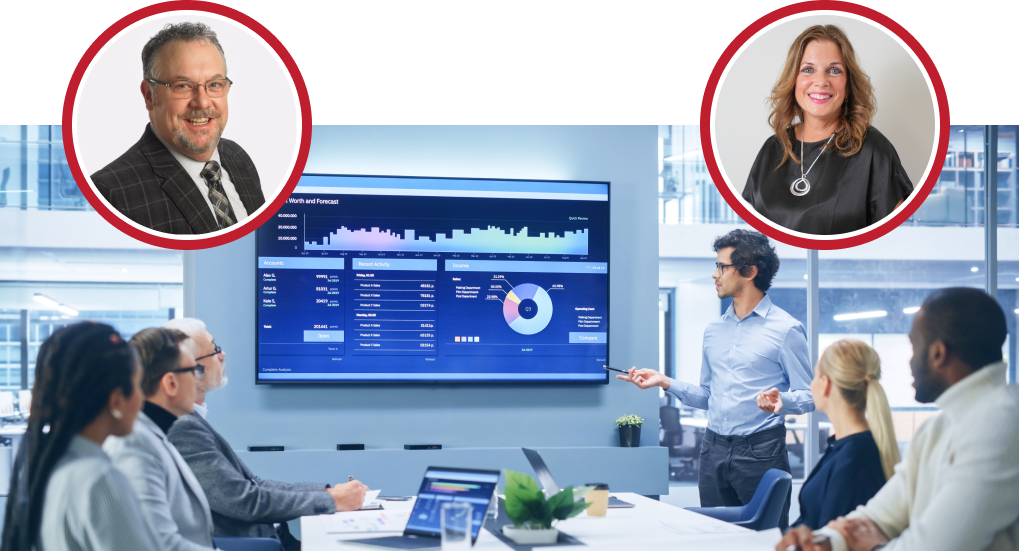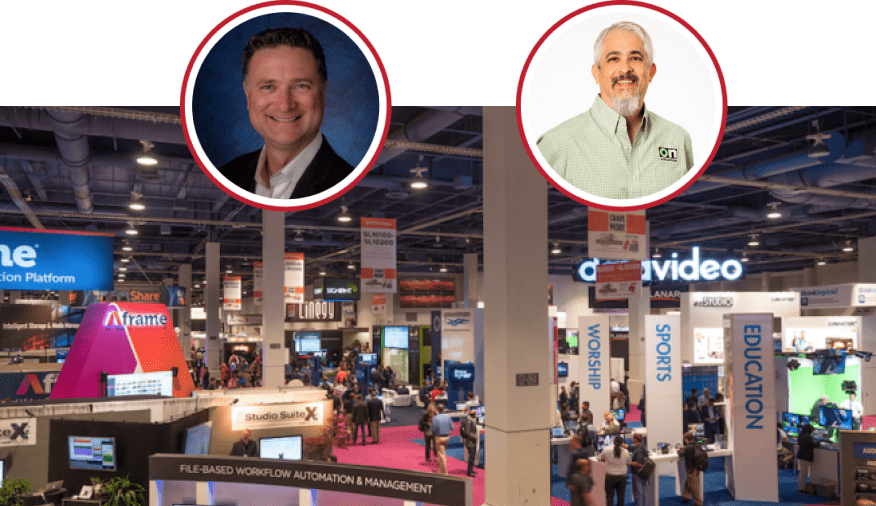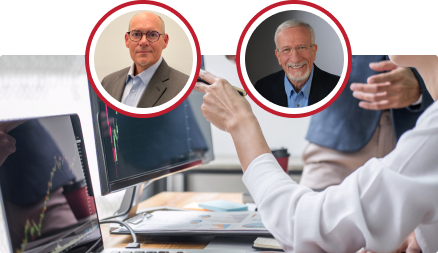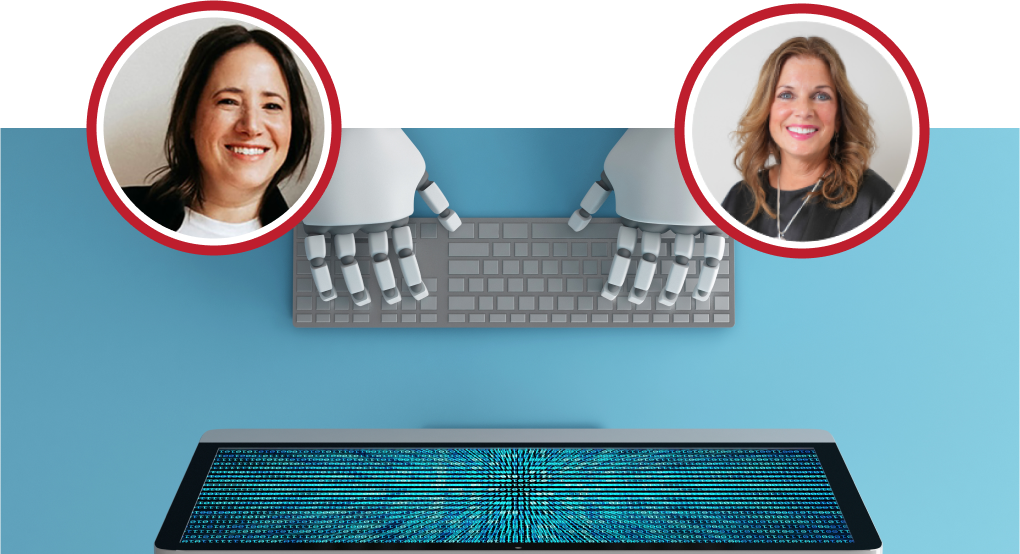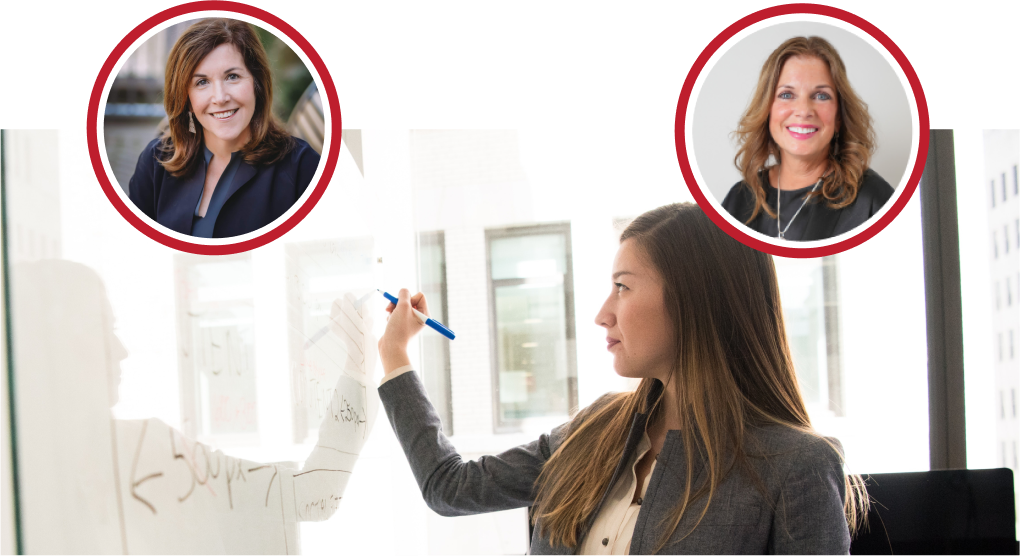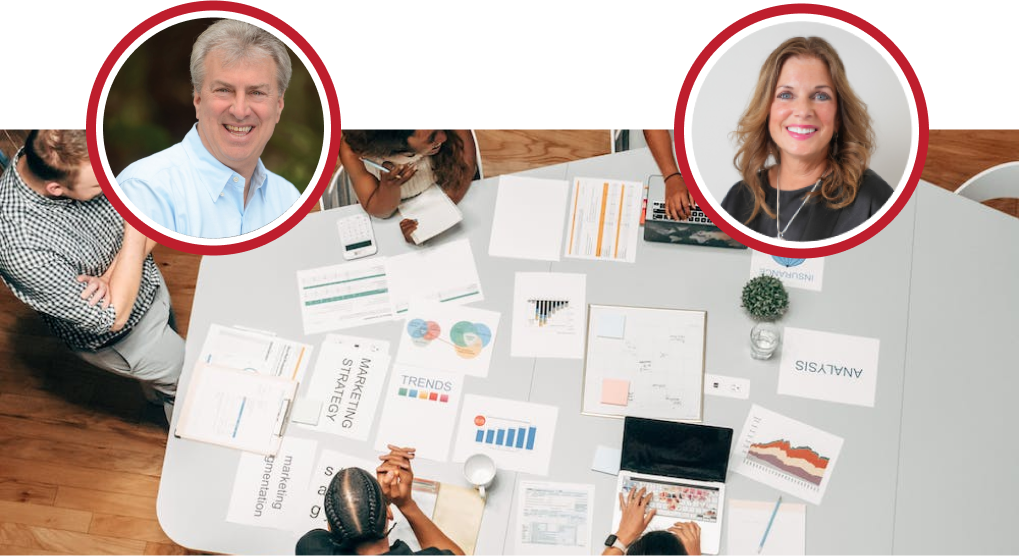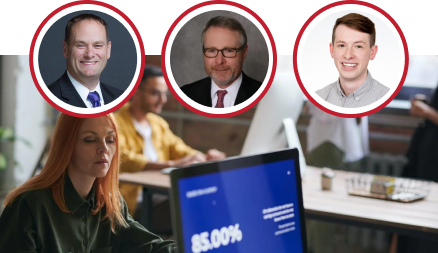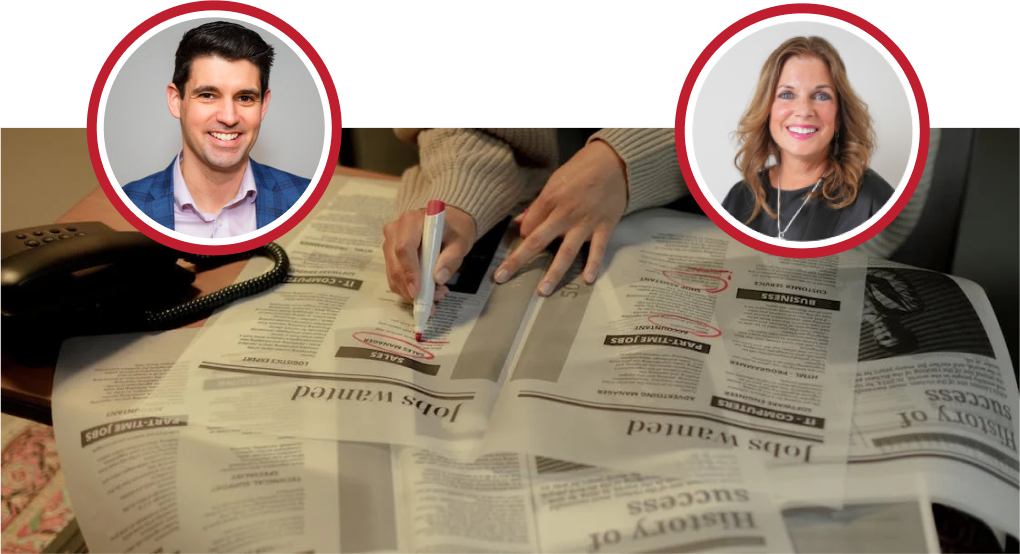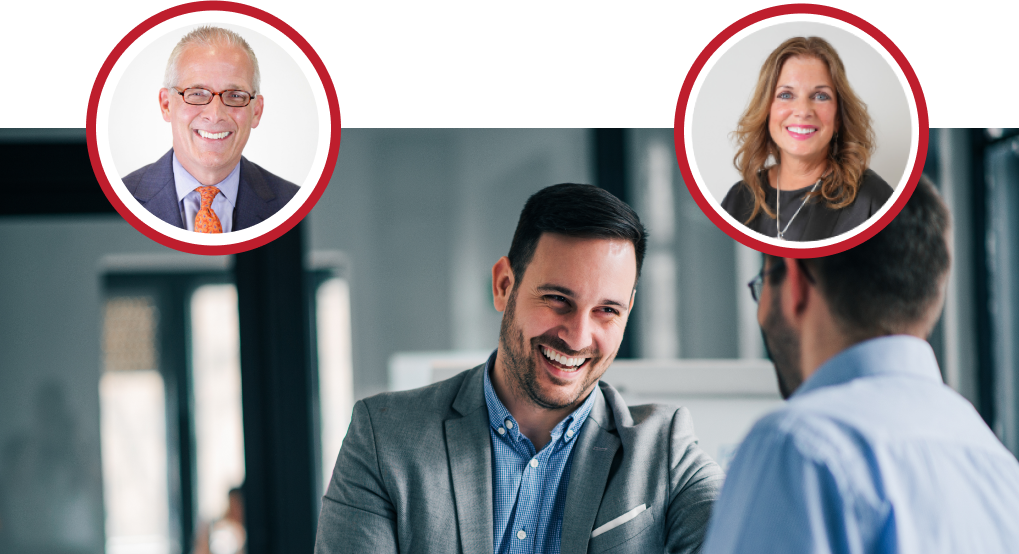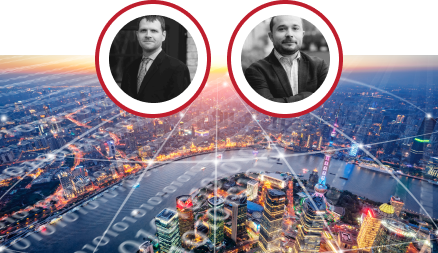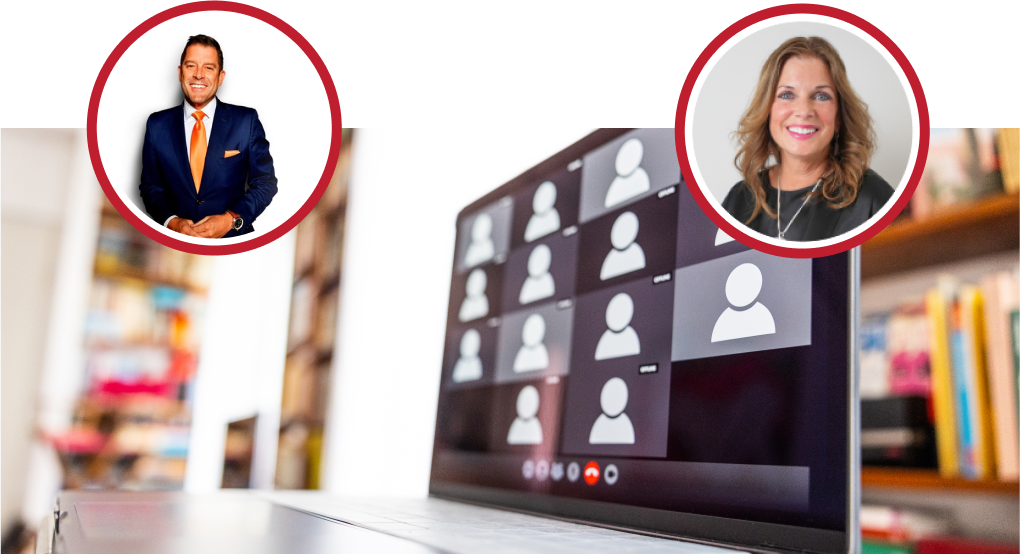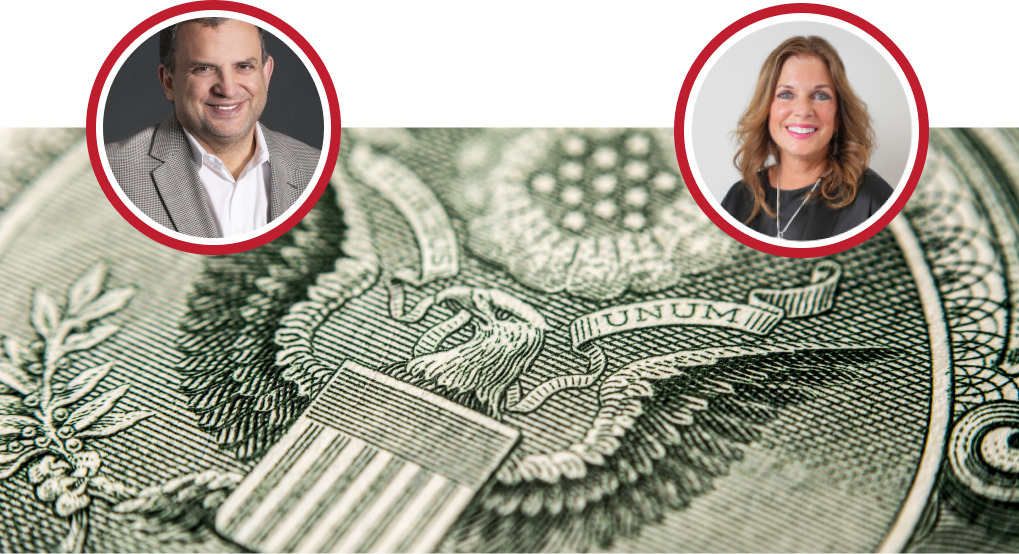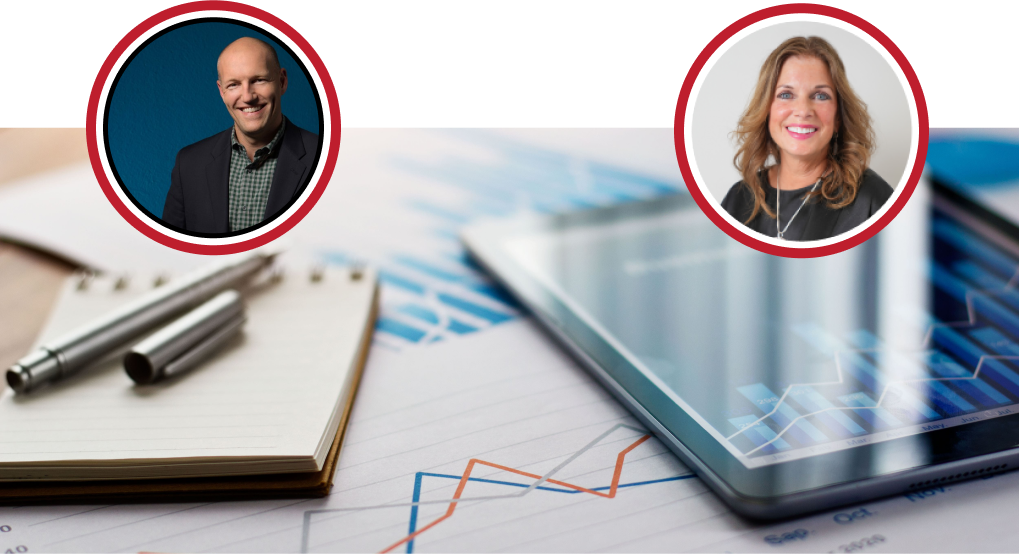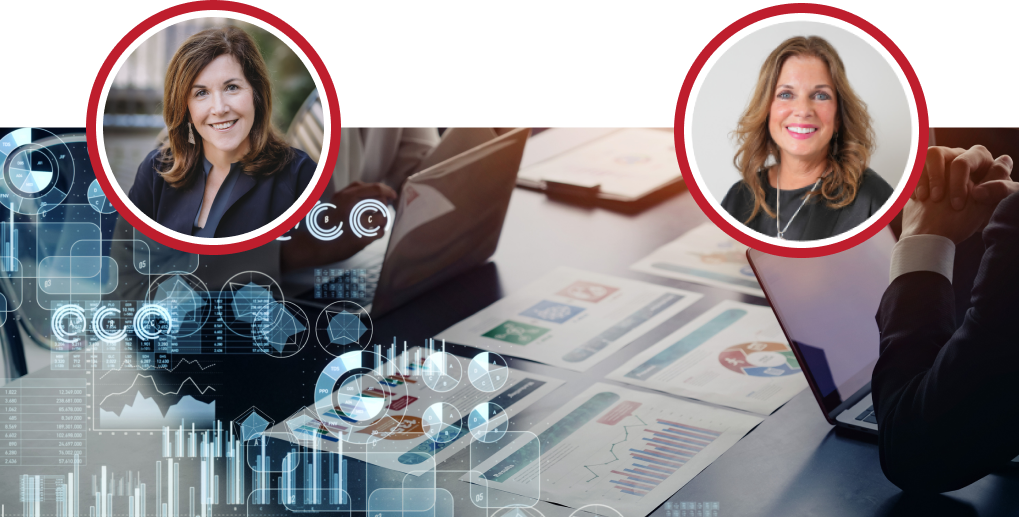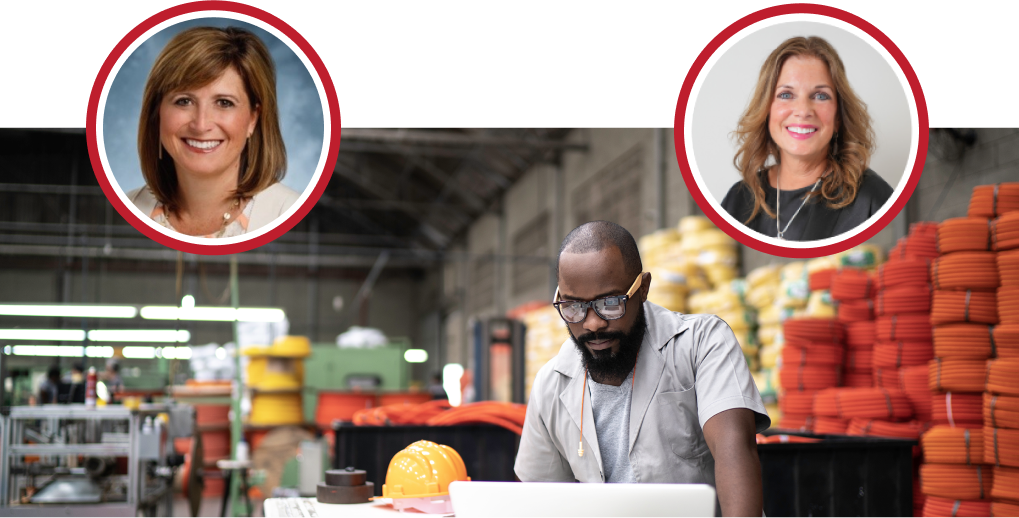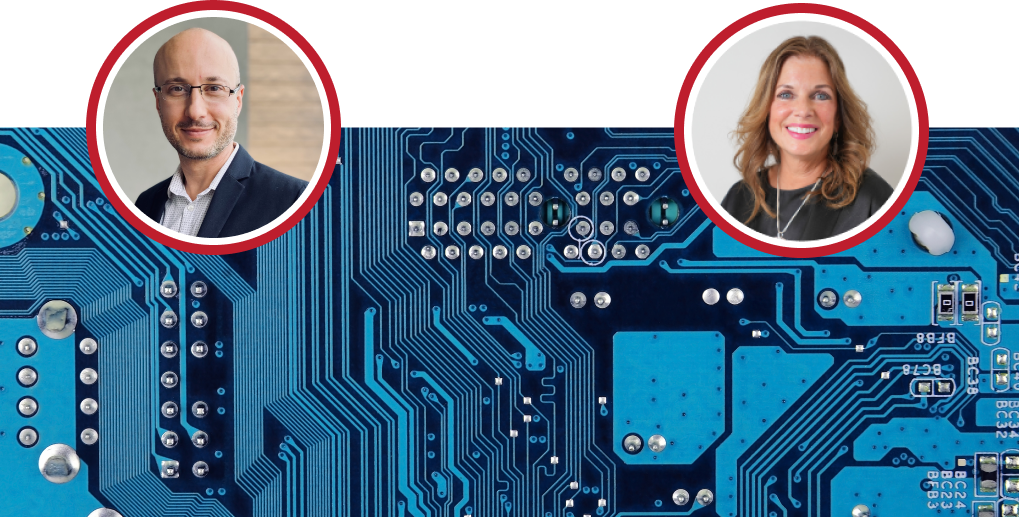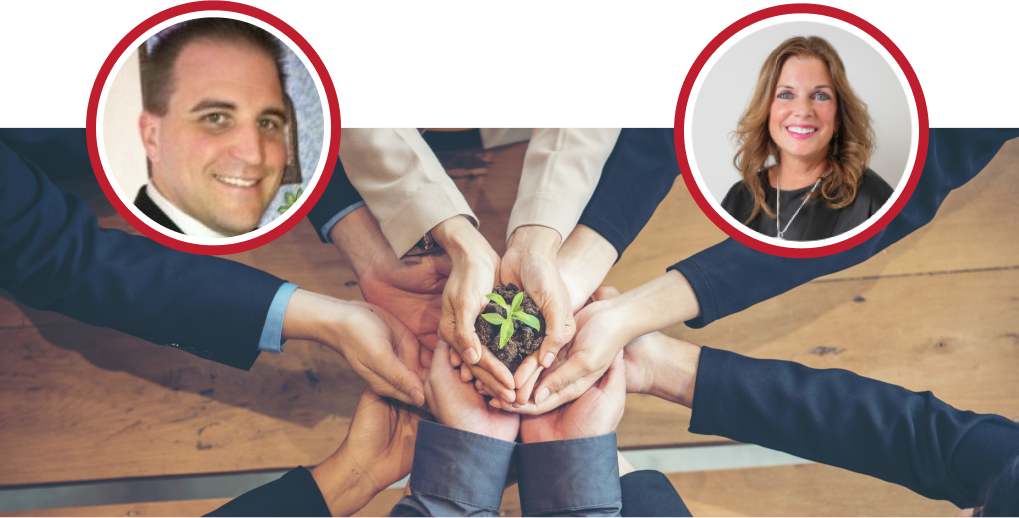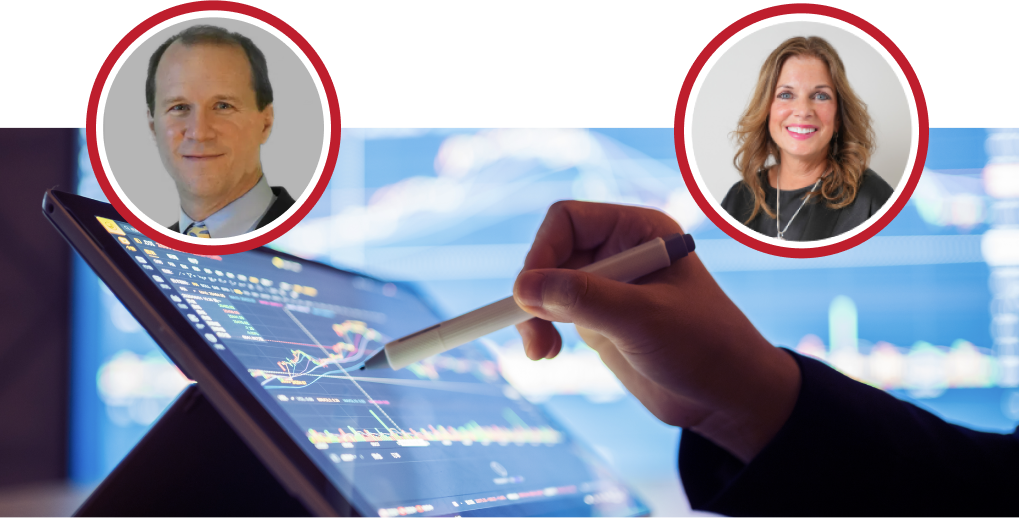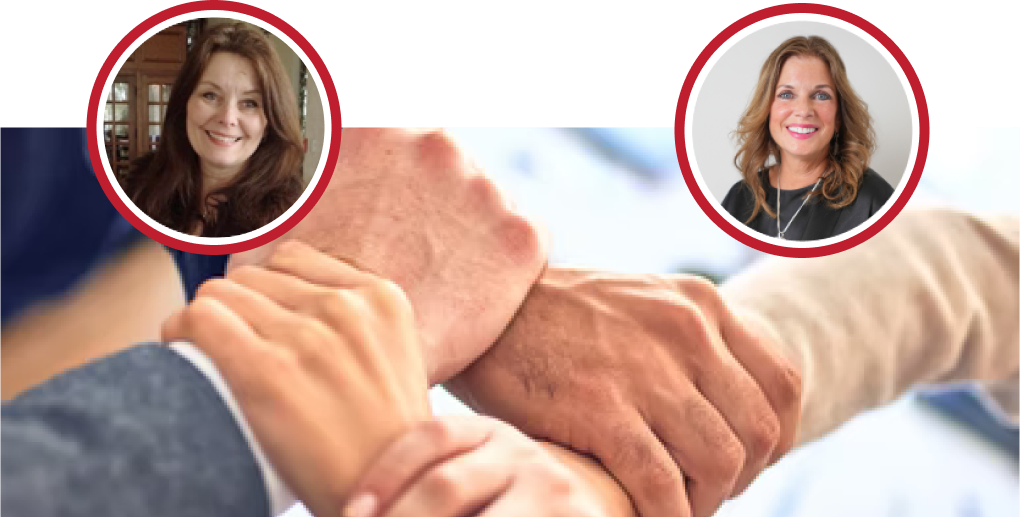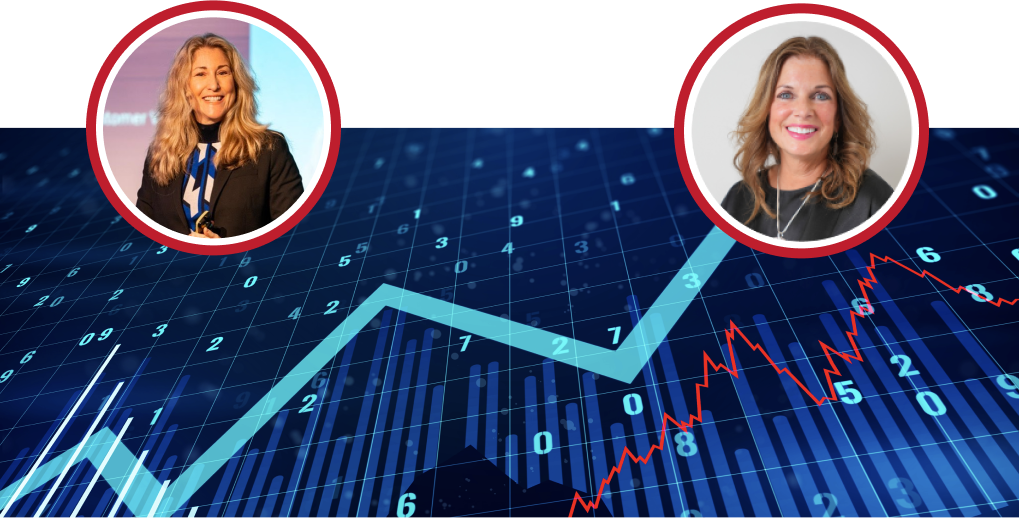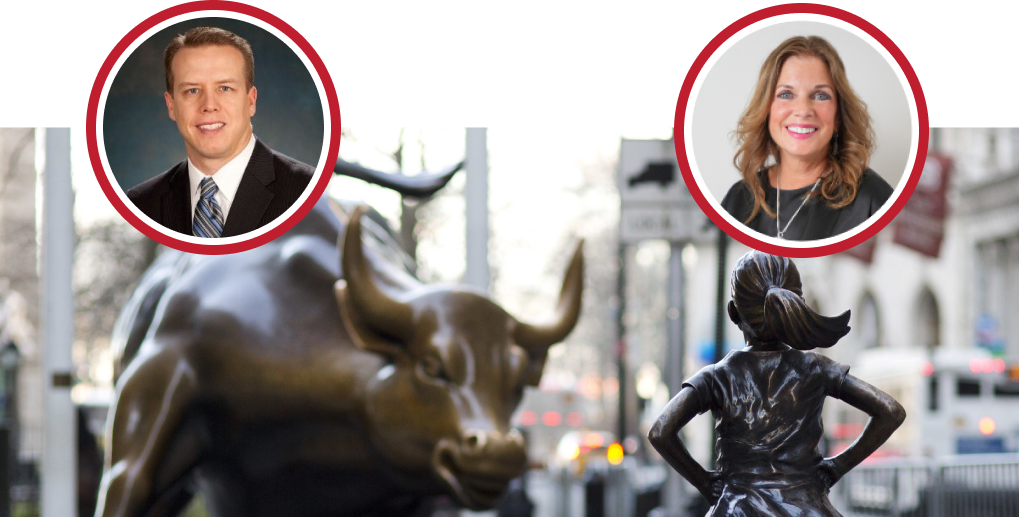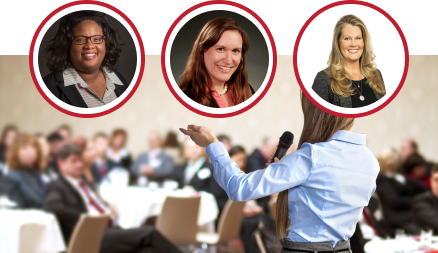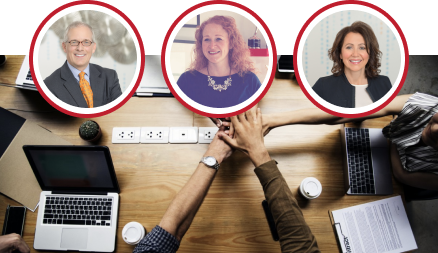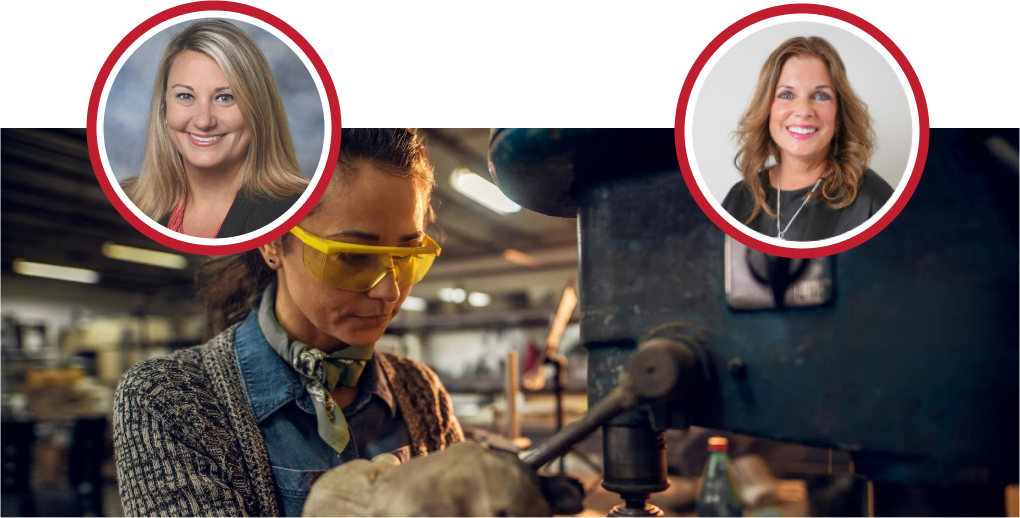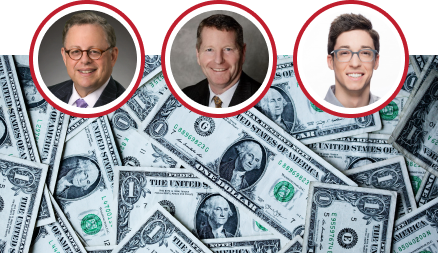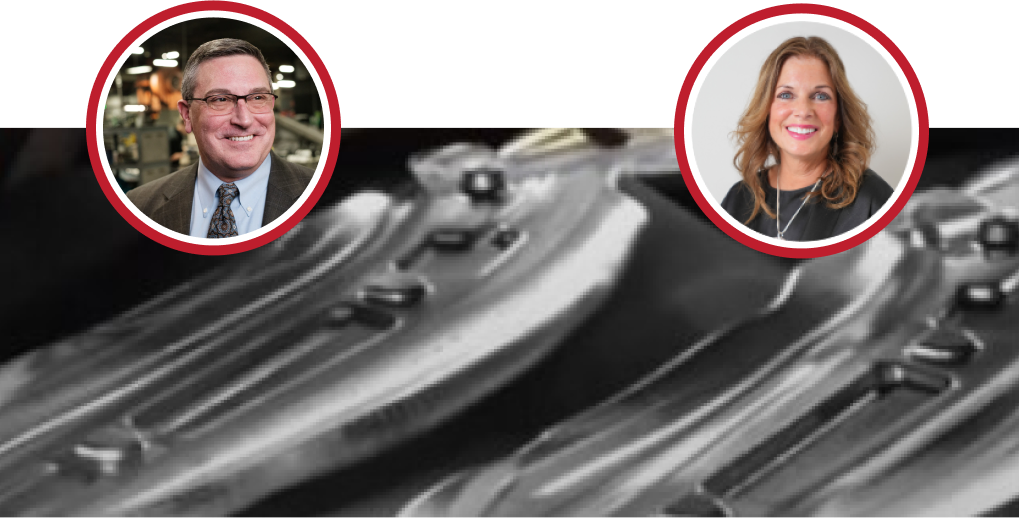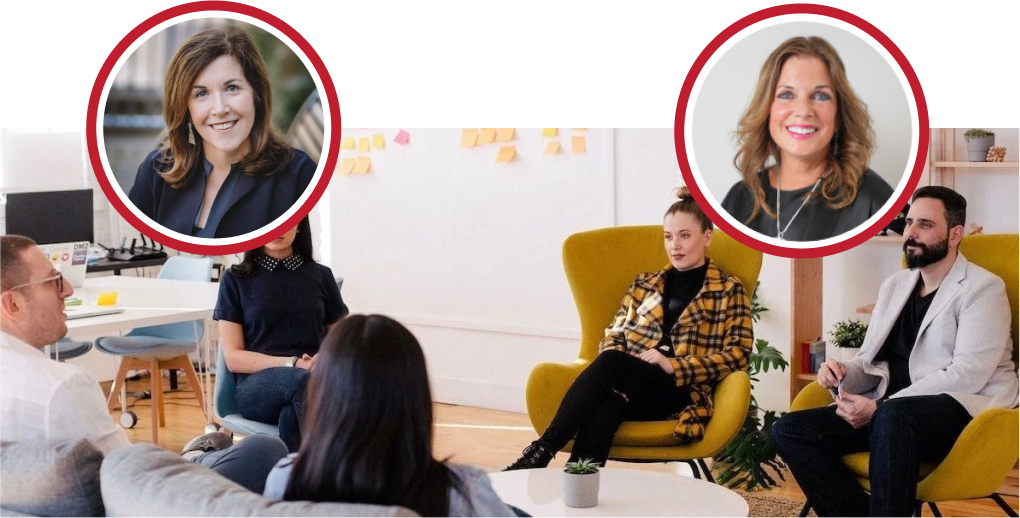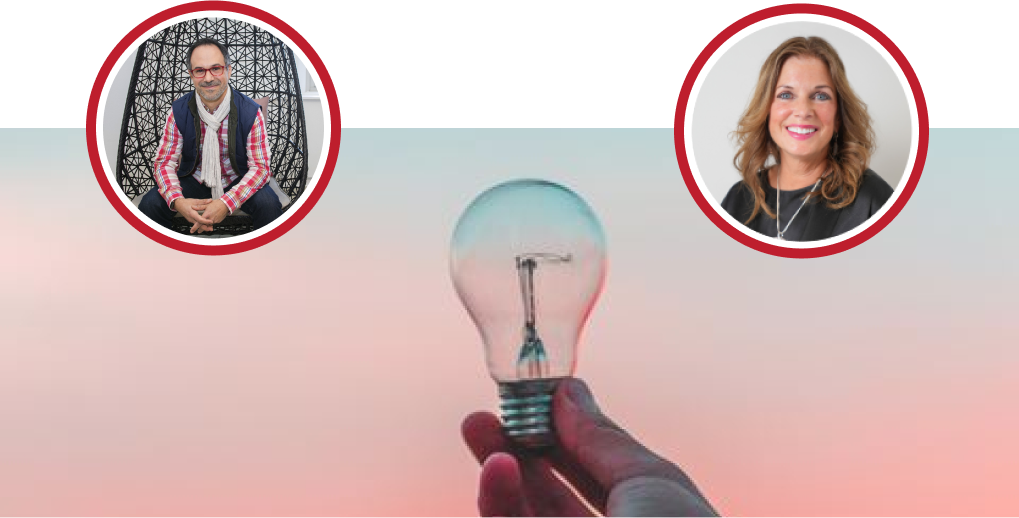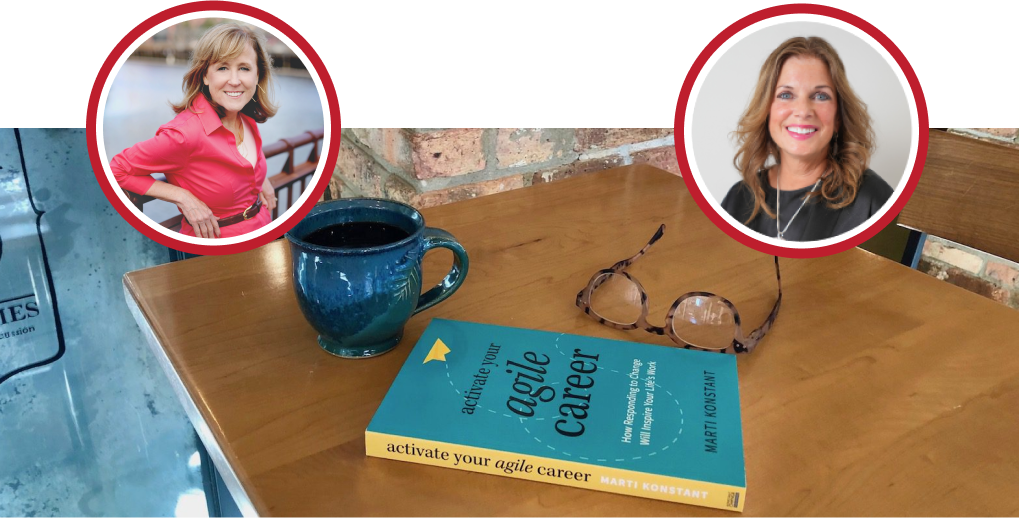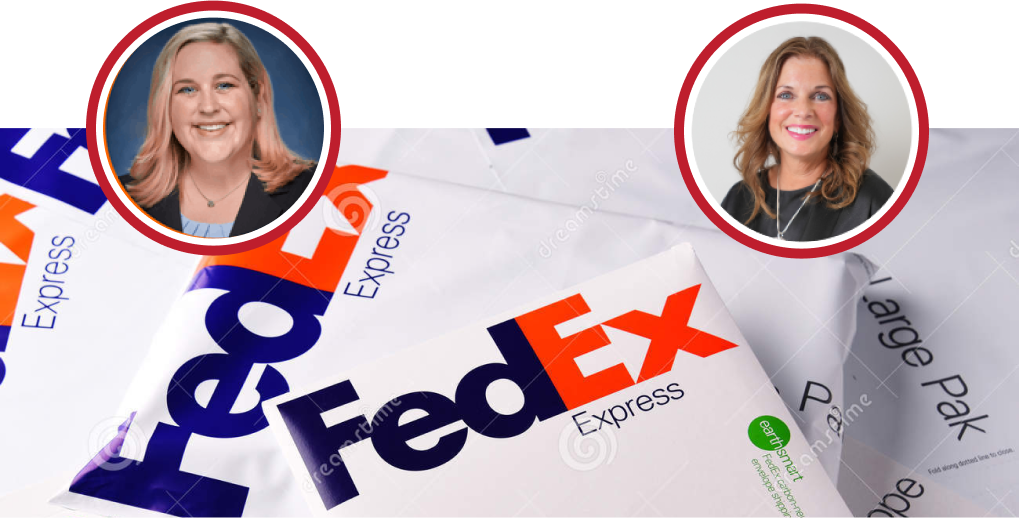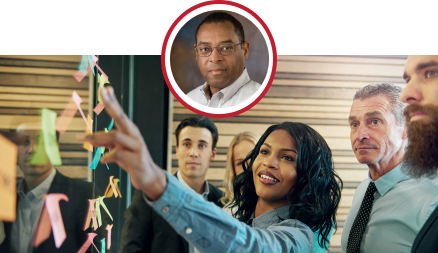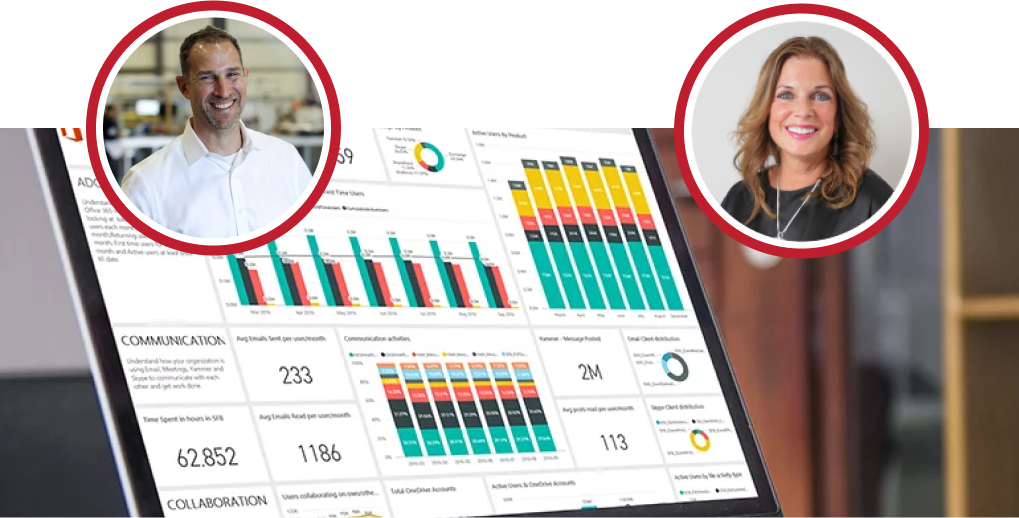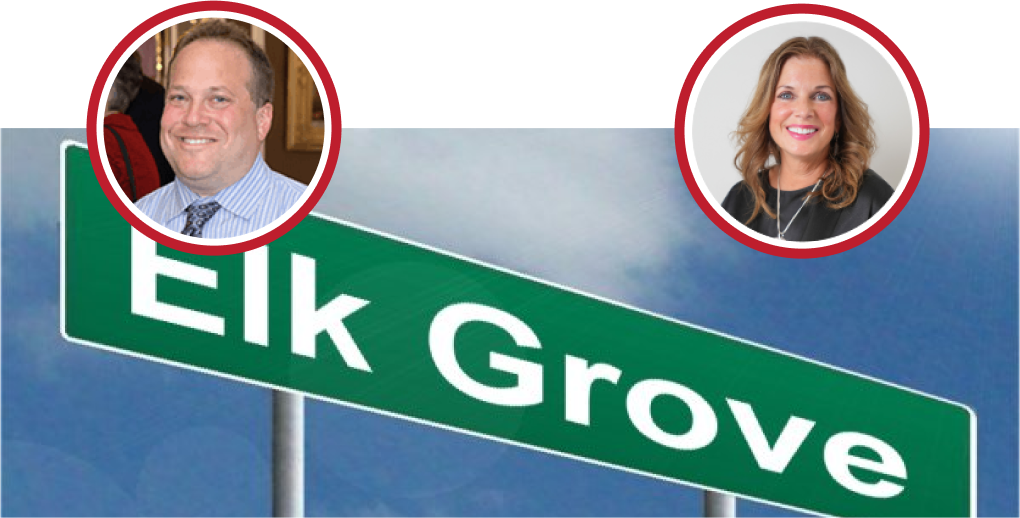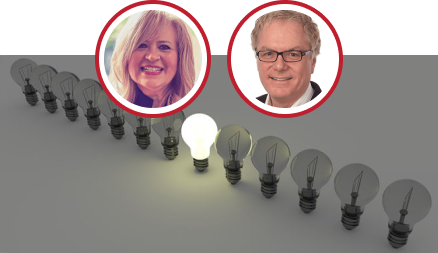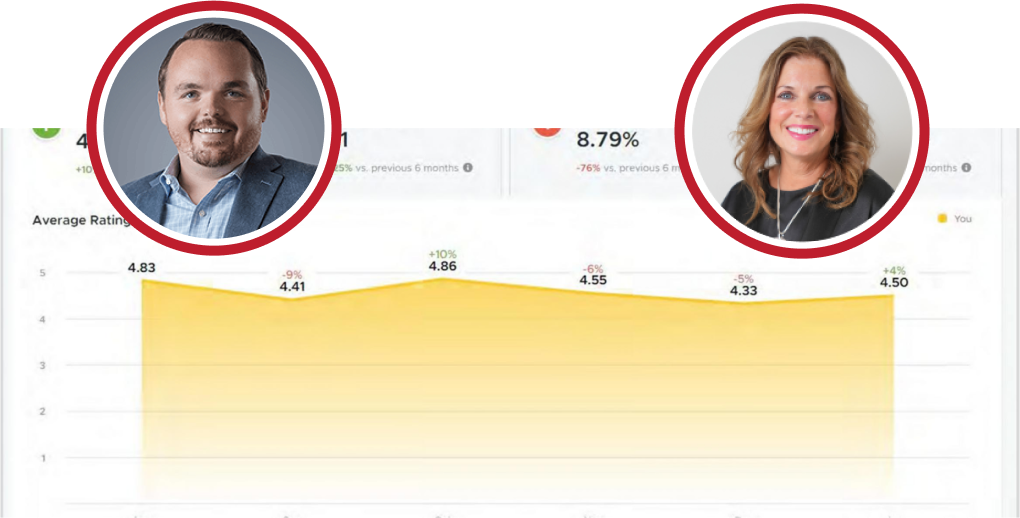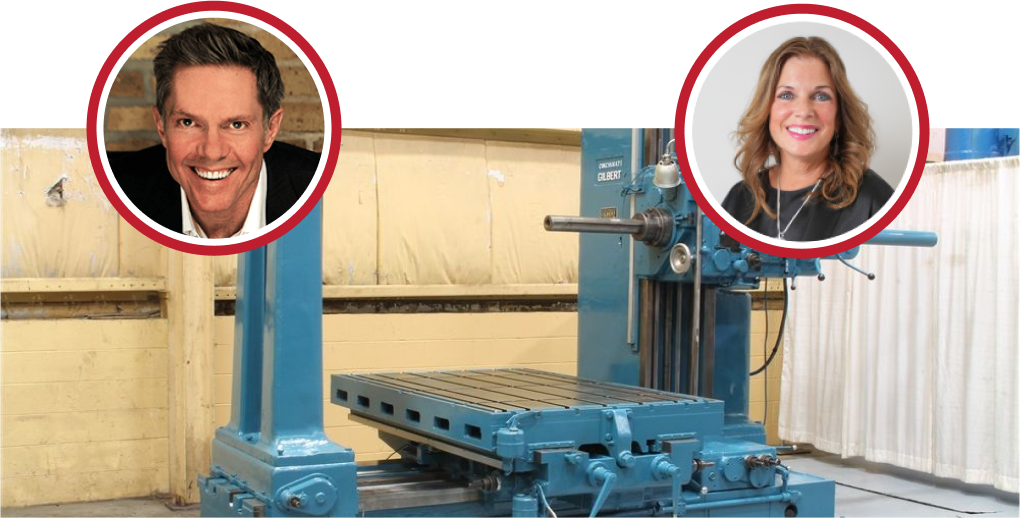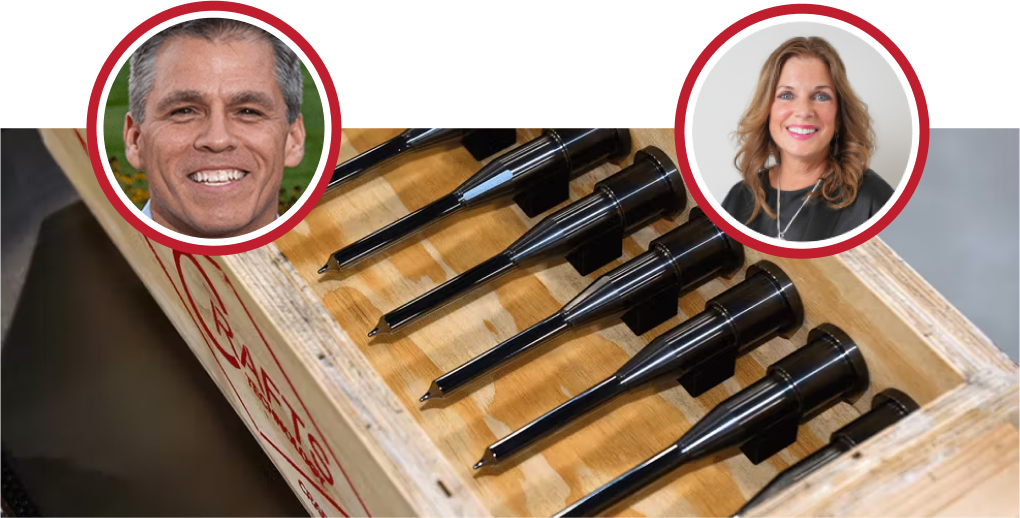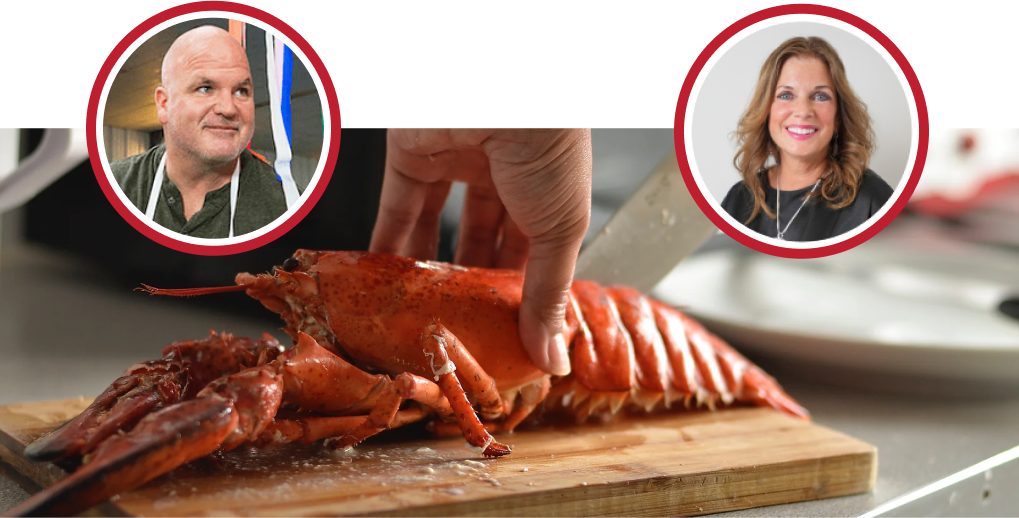Kathy: You are attending live. Do it during the zoom today, and you want to ask a question, please add that to the chat or the QA, and we will field those questions during the event as well, as, in the end, we’ll leave some time for that as well and then if you are attending on our live stream via LinkedIn or Facebook. Dayna Walters will be your moderator there, and she will feed any questions that you have to Marilyn and me as we go along with today’s session, so good afternoon; I’m Kathy Steele, and I am going to be your host today of the “Business as Unusual.” We will be featuring Marilyn Fayemi, she is going to talk about one of the hottest button topics that are going on today, and that is around the talent market, so give a little bit of an intro for Mary Lynn, she’s the president and CEO of HR source, and they’re a Chicago based employers association with over 1200 members she’s a highly respected speaker trainer and advisor and an authority on a lot of workplace issues including culture employment trends and HR management she serves currently serves on the world at work board of directors and is the past chair of the board of directors for both the association forum and the Chicago land employer association of America, so Maryland was also recently honored by crane Chicago business as a notable leader in HR congratulations on that it’s always fun to get noticed by Clint Crane’s book Maryland, why don’t you just tell us a little bit about yourself on what’s not on this bio that people should know about your career journey?
Mary: Thanks Kathy, first of all I’m so excited to be again a guest of Red Caffeine on your “Business as Unusual” program such a fan of your organization and of you personally, so again it’s my honor to be here I’ve spent my career in the HR field I’m one of those kind of unique individuals who actually studied HR in college which is not very common I am very proud to be an Iowa, Hawkeye graduate and then went on thinking I was going to practice my career in global management, so I have a master’s in international management, but I’ve ended up spending my career in the states over 30 years now in HR and was so fortunate in my early years to find what was then called the Management Association of Illinois- An Employer’s Association that’s been around 124 years which people often find difficult to believe that we’ve been since the 19th century, but I’ve been really honored to be part of this organization for three decades now and leading it for just over two as we’ve really run the gamut of challenges for employers and has made it very exciting the pandemic of course has thrown us some curveballs that we could have never in a million years expected but what doesn’t kill you makes you stronger, so I’m really excited to be watching our employers make good decisions and morph and grow and evolve to become even more successful in the years ahead, so I couldn’t also fail to mention that I’m a proud mother of two and just someone who likes to serve others and help in any way I can people to grow and develop into their best selves.
Kathy: Well, that’s so fantastic, and thank you. It is so uncommon to think of many businesses outside of manufacturing that have had that legacy of existence so incredible accomplishment to have an organization that’s celebrating 100 years it’s tough to run a business, and so we like to really always start by kind of thinking about the different ways people can grow their business, so growth lanes is really where we always try and start this conversation and I remember thinking about human capital as an part of this whole diagram of how we think about business growth, but I never really thought we’d be in the situation that we’re in today I really, I know it’s been going on for a few years this workforce and talent management challenges, but I mean this is like a mission-critical piece of everybody’s businesses there’s so many businesses even that are going to be stopped from their ability to grow just based on the way they will approach their workforce so excited to have you talking about some of these issues today, and it’s always sort of great to get the perspective of somebody that has the lens of so many different businesses from large to small and across many industry verticals because while I’m sure there arethere are some nuances there’s also things that are common to all businesses and organizations today so what I loved during our prep was your reframing of this kind of hot button headline that we’re all seeing around the great resignation and so kind of let’s start there like what are some of the things that we can do to really rethink our approach to the workforce today.
Mary: Yeah Kathy, as I reflect back on the phone calls and emails I’ve received in the past couple months for speaking engagements or articles everyone wants to talk about the great resignation right it is the hot button issue that people just want to explore, and unfortunately I feel like the press has kind of put a negative spin on it and really in some ways taken the opportunity to kind of give it to employers in a not so positive way so as an advocate for employers who have worked so hard during the pandemic to take good care of their employees to try to figure out how to be successful and serve their customers and pivot and all of those trending words I love some of the other terms that have become somewhat popular now the great talent swap the great realignment I saw one just yesterday the great regeneration which I i liked, and I think it is an opportunity for employers to reconsider their most important asset right for many years some leaders gave lip service to the old term our human resource sources are our most important resource, but they didn’t really live and breathe it right they didn’t really put that into action it didn’t show through the way they treated their employees or the way they searched for talent and that has changed, and if it hasn’t changed already for you and your organization, you may be one of those employers who are really trying to figure out how to hold on to the employees you have and how to recruit new talent because it’s critical to take a good hard look in the mirror as employers to say why are we losing people why are our current employees not very engaged and or to the alternative oh my gosh why are our employees even more productive than ever they’re working remotely we barely ever see them, but they’re heads down performing way above our expectations what is it in our formula that’s helping that to happen so trying to look at the positive this about me Kathy, I’m an eternal optimist even in spite of some of the biggest challenges I think there’s so much opportunity for growth renewal and learning and those employers who are taking that opportunity are going to find success even as they sludge through these difficult times.
Kathy: Yeah, no, I mean, I think we’ve been talking about this for a while, and I and many of us have been seeing us sort of come coming. I mean, it is not really new news, but I think it’s accelerated across all market verticals, and I think there were more pockets of challenges a few years ago, but there are just so many reasons we’re in this situation that we’re in, and it is kind of fun and challenging to really rethink how we act as employers and also how we sort of what we can do to make the employee experience different and better in our organizations and for ourselves as leaders I mean we just talked about some of the perks that we’ve enjoyed because we’re not forced to do the things that we were kind of forced to do from a be in the office framework that we had before so but tell us a little bit more about what you’re seeing how serious is this talent shortage what are you seeing across your members.
Mary: I think first of all there is so much data out there it’s really interesting and overwhelming but this challenge we have with labor force participation as you just said a little bit ago isn’t completely taking us by surprise right the labor force participation rate in the United States has been falling for some time I was reading some work from an economist who talked about the fact that especially among young males the participation rate has been falling for decades, and it’s extremely concerning one of the unfortunate culprits of that is all the screen time that people have they’re not usually spending their time productively necessarily if they’re livinparent’s, unfortunately,theireir parents basements and gaming or streaming or doing all the things that are easy to do and get distracted with, but then the pandemic accelerated some of the labor force participation issues unfortunately minorities and females in droves ended up leaving the workforce to either take care of children or the elderly loved ones many individuals were suffering health care challenges themselves and now even if they are healthy and have child care may be fearful of coming back into the workplace or maybe unwilling to get vaccinated and work in an industry where being vaccinated is required. We also have many employees I think 80 percent is the statistic that I read recently of people really re-evaluating whether or not they want to work anymore in a full-time traditional job I think the other thing that the data and the press isn’t necessarily putting a big spotlight on is that many people aren’t resigning and then sitting on the sidelines for a long time they’re finding better opportunities, so they might be leaving a retail service environment or a lower-paying job and finding opportunities where they can grow make a higher have a higher standard of living, so there’s a lot behind these concerning numbers that we might be seeing, and it’s important to realize that the trends aren’t all negative I mean there are many opportunities where people are making conscious choices that are for their own personal good, and I’m happy about that for them and I think there are many positive things that are happening in the work environment and there are a lot of openings and opportunities for people to consider new options.
Kathy: Yeah, no I mean, I think even in the questions we’re being asked on in the interview process around not just flexibility or working from home but really about how will you address if I have a daycare issue because there’s been an incident at my child’s school or so I think that those are things that I don’t recall being a part of the conversations in the interview process but really trying to match your personal needs with what your employer is going to be able to kind of live with or work around in that work experience for employees I think it’s just it’s challenging us to just think differently and then I’m even seeing some exciting things around how people are thinking about their operations like hey, we can’t find this particular person this level of skill set so is there something that we can do that would be more appropriate for an apprentice or a more appropriate for more junior level worker that we could fine-tune our offering, so we have the capacity to do something new within what we had done in the past, so I think it’s an exciting time is there any other thoughts that you had around like what people could do in terms of using this time to kind of rethink their approach to talent and their offering.
Mary: Well, I’m going to just piggyback off a couple of things you said one is to look at whether or not you have opportunities to have technology take the place of some of the tasks that are being done there are so many amazing applications out there AI (artificial intelligence) is wide-reaching and has many applications in today’s modern workforce also being creative with regard to are your entry standards for any particular job higher than they need to be I’m seeing more and more organizations take off their requirement for a college degree and looking at whether or not someone has skills or experience that could be just as effective for various roles in their organization so lowering these prerequisites also opening their eyes to does this really need to be someone who is within our geographic area could this job be done by someone in India or in China or in California or Mexico right could it be done and does it need to be done sorry my lights went off if I don’t move enough my office lights go off I’m mood lighting here so but thinking outside of our traditional prerequisites or our job what’s on the job description another couple of interesting you would mention younger employees but potentially older employees there are a lot of people who are willing to boomerang leave the workforce and then come back the gig economy right are there people who only want to work during the summer or during particular periods of the year or working mothers or working parents who say hey I have a lot of time between nine and two and even more time if you don’t need me to come into the workplace, or you have an asynchronous model where I’ve talked to a number of young couples that are managing to live almost completely without daycare because they have jobs where one of them works from 5 a.m. to 8 a.m. right they stagger their work day and then comes back online later in the evening and if you’re willing to be creative and be flexible and open your eyes to even piloting things you might not have ever considered before you might be able to find some talent that in the past wasn’t accessible to you.
Kathy: Yeah, no I mean, I’m hearing it all over I think we’re all being forced to be creative I mean there’s some things that are not don’t require a nine to five sort of day and so being able to let people work in pockets of time when they have their kids are sleeping or there’s other options or they just are a night owl I mean I even remember earlier days some of my creative people just were way more inspired at 6:00 p.m. than they were at 6:00 a.m. so why should they be bound by our work hours if they can make a client meeting I think it opening that door to that type of flexibility is a little bit new for employers we’ll talk a little bit about the stigma of having people resign or leave your workforce I know that’s been asked me sometimes and I, i honestly used to take it very personal and feel like there was something I was doing wrong when we were having people exit the organization now I kind of love seeing where they go next so talk a little bit about how do you address if you’ve had sort of an exodus of some team members how do sort of as assure somebody that’s a new candidate to your organization that might be seeing this flux in your workforce so to the degree possible I believe in candor and transparency right so not only letting your own team know again unless there’s a reason that you need to keep it confidential and there are some of those reasons in our workplaces but to the degree possible letting people know that the person moved on due to family obligations or due to a great opportunity for growth and development back in the day I feel like you and I talked about this where it was almost like a breakup like you took it so personally and in now to embrace it and to realize that everybody’s career is a different journey right, and we should as employers be grateful and respectful of the journeys that our team members are on so the more open we can be about the fact that while we love people to be long tenured and to serve our organizations for many years if possible if they’re not learning growing feeling appreciated and are moving on we want to help them do that with dignity and respect and back to that term I used before about boomerang they may end up coming back some of our most wonderful employees here had prior gigs here they were former employees and or they were members for many years and chose to come back here and work with us in some capacity which I take as a great compliment and is a wonderful so keeping those lines of communication open and continuing that relationship, although it may be different I think is important being honest with candidates about why you’ve experienced some turnover and then also being transparent about if you’ve learned things from the turnover that are causing you to consider changes to your culture to your compensation to your benefits to your work-life balance being as open about where you are as an organization in terms of taking some of those things seriously and working on them, I think will accrue to the good.
Kathy: Yeah, no, I always, I do think that honesty across the board, whether it’s in your job descriptions or giving somebody a preview of the role, I mean, it is it’s hard to tell everybody everything about your organization in a few interviews, and you’re still in that sort of dating phase or so to speak so but trying to be as candid as possible about what the work experience is going to look like so that in 30 days they are saying it was exactly, as I expected I think those types of things help reduce that sort of mismatch of expectation as well in terms of sort of the baselines that we think about inter in when somebody is like looking at your organization what are some of those trends that you’re seeing in compensation and benefits and perks that people have invested in to become an employer of choice.
Mary: So, number one, and this will not surprise you, is employees and applicants are looking for flexibility more than ever before, so there was a recent study that showed that if you put remote work or flexible schedule terms like that in your job post, you can boost your applicant flow by 60, so people are looking for freedom and flexibility and how they achieve their own personal formula for work-life balance secondly with regard to compensation as you’ve read the trends are moving up we usually we’re seeing about a three percent average increase 2.5 to 3.5 for many years really since the recovery after the last recession most recent data is showing that trending closer to four percent and in some industries even higher, and I would predict that that’s going to continue for the foreseeable future we’re also seeing a return go ahead Kath.
Kathy: I’m going to ask a little bit, so what are some of the sources for salary data because I know there are a lot of online resources now that candidates can forget to get a picture of what they should be paid, but what are what is a trust a couple of trustworthy sources for salary data so and how frequently should employers be reviewing that to make sure that they don’t have outlier roles that they’re undervaluing those pay bans.
Mary: Well, super question, if softball to me HR source would be a great place to start or employers’ associations like ours, and we participate in a number of national surveys as well with our sister associations around the country, but then there are organizations like the world at work where I admittedly serve as the Chairman of their Board of Directors so also have a little skin in the game there of course, but then there are also many survey houses that are well known that you might rely upon those sources of data if you want to buy an actual survey Mercer Watson Wyatt are going to be very expensive there are also online resources like salary.com. I would recommend as an employer to make sure that the data is being provided by employers, not necessarily by individual incumbents and so and for some surveys, it’s a little difficult you have to really get into the fine print to determine where this data came from, but there’s been some criticism of, and I think it’s a valid criticism of sites like Glassdoor where if you’re going to go in and write a critique of your former employer or current employer that you need to enter your title and your wage rate, etc. which is very uncomfortable for many, and I think cause many individuals who might otherwise go on and put a positive comment to not be motivated because they don’t want to reveal that data in an online format and kind of have it out of their control, so survey data is easier to come by than ever before, but please check the source before you place your trust in it.
Kathy: Yeah, I know, I really like data that is sort of both employee and employer-driven, so I think it’s it tends to be a little more authentic, but I do know certain niche people or certain niche organizations really struggle with finding data that’s really relevant to their target audience in terms of employer base, so it’s a little challenging, and it’s, and I would assume that associations might be a place to go that is specific to your industry it would be.
Mary: Exactly! Industry associations are a great source, and keep in mind annual surveys used to be enough use typically, but the market is moving so quickly right now we are doing much more frequent pulse surveys to make sure with inflation moving so quickly, the cost of living changing so quickly the external environment moving at a rapid pace we’re going to have to be checking into those numbers on a more frequent basis than we were in the past.
Kathy: Yeah, no, I know. I would just say that that’s what we see as well, so what else? I didn’t mean to disrupt you.
Mary: The other thing I think really important compensation is obviously going to continue to be an important element of anybody’s total rewards package and the reasons that help recruit and retain people in your organization but flexibility I already talked about also benefits are increasingly important, and it’s not just health care benefits people are looking at they’re looking at other types of benefits one of the most popular things that’s being talked about right now not yet implemented all over the place but talked about extensively is student loan repayments some people are also looking for things like pet insurance mental health programs and additional benefits sabbaticals or extended time off I think it was KPMG that now guarantees its employees at least two nine day breaks in a year from work, so nine consecutive days so paid time off flexibility and what your time off is I always encourage employers to think about who it is you’re trying to attract and retain so if you’ve got a lot of employees who are nearing retirement you might really want to boost your 401K match right because they’re saving as much as they can for retirement a lot of times if you’re trying to recruit a lot of recent college grads they may say there’s no way I can contribute to my 401K, yet I’ve got these student loans hanging over my head they’re going to be way more excited about help repaying those student loans so think about who it is you’re trying to target survey your own employees and then also listen carefully to applicants to what they’re looking for because you’re going to find a lot of your answers right there in those responses.
Kathy: Yeah, no, it’s so interesting because it feels like it changes, every couple of years, the real kind of the common questions that were being asked. I also wondered, is there some ability for organizations to have that non-like vanilla of benefits so could maybe give somebody the option of a higher 401k match versus and then other people the option are you able to kind of make some custom approaches to your benefits packages now.
Mary: Yes and no. So, yes some organizations the larger you are, the more likely you’re going to be able to use what in the industry is called a cafeteria plan which really means that you set aside a specific dollar amount that you use towards employee benefits in a smaller organization there’s a couple of concerns and this concern can apply to large too and that is you never want to have any adverse impact in terms of discriminatory you don’t want your lower paid employees who really need health insurance to opt out of health insurance so that they can get a higher wage for example or use the benefit in another way you don’t want any sort of discrimination to occur and also for many benefit plans there is a set number of employees that need to be in a given program for the employer to get a specific rate so that also impairs some of your ability to be completely flexible, so my answer is yes and no there is some opportunity to have opt-in and opt-outs but proceed with caution and get legal assistance or assistance from a certified benefits consultant before you make those decisions if you have good brokers in both the healthcare arena as well as in the 401k space they will also help you to make sure you’re not going to fail the discrimination testing and get yourself into their hot water.
Kathy: So, another kind of hot button thing that I’m seeing is intensifying new hires, so what do you what’s your view on sign-on bonuses and those types of things that we’re seeing people use to attract candidates.
Mary: So, they’re definitely back in vogue they I’ve never been a huge fan of them because they are they don’t always lead to long-term retention right they have to get someone in the door but right now they’re a competitive factor, so many organizations are using them they’re more popular in professional services financial services certain industries are using them much more frequently, so there’s no question that they are a competitive factor these days they often are in a super tight job market concerns that arise when you’re doing them is your current and long-term dedicated employees are saying what the heck what about me why did this person who’s not proven themselves at all just get five or ten thousand dollars without even having worked a day here at this organization what I do like a lot are employee referral programs where your employees are making recommendations and your current employees are reaping the benefits of referring strong candidates to your organization and those are often really successful, and I’ve seen many employers raise the bar on the payout for those in the past couple of years both are just tools in your arsenal of competing against other employers right now so some employers are saying they’re a non-starter for us others are saying we’re not going to do a sign-on bonus, but perhaps we’ll do a three or a six-month boost to your base salary once you’ve shown us that you’re a good fit for our organization but if you’re in an industry where all your competitors are giving them you might not have a choice.
Kathy: Yeah, no I agree, and I think what we have been recommending is if you’re going to do something where you’re doing an incentive like that then you also should have some type of internal program around bonusing or other sort of thank you to your current staff that does sort of show that you value their tenure you value them as an employee because they could opt out of your organization for that thousand dollar five thousand dollar sign on bonus at your competitor, so I think just making sure that you’re aware the other thing is I mean I still feel like there’s some antiquated practices around hiring friends and family and so much of the data has proved that people want to work with people they know and like, and it’s not like you’re going to you limit their effectiveness you really actually may boost their effectiveness because they’re just happier at work because they’re working with people they like, so I still know that some businesses do sort of have that rule around friends and family being hired at an organization and I think it kind of is limiting.
Mary: Yeah, there, we used to see a lot more of those anti-nepotism policies, were much more common. Certainly, we still see policies that speak to whether or not you can have a manager and employee relationship between family members, and I certainly I understand the concerns in that arena, but in an environment, like we have today, where talent is tough to find, we’re seeing much more flexibility on behalf of our member organizations who are saying what we don’t want to put any more guardrails up than we need to attracting talent and word of mouth is one of the best ways to introduce your organization to others and friends and family can be a wonderful source of strong candidates for your organization so why do we want to put up unnecessary barriers when that can be a wonderful resource I agree with you, Kathy.
Kathy: Yeah, I think that you mentioned that that barrier around college, and I was just talking to a group about that same thing where does this really this role really require a college degree, so really looking at your hiring practices and making sure that there’s nothing that’s limiting candidates from at least applying for a job, so we talked a little bit about what are some of the things that are kind of enticing candidates to apply for a role what are the things that you’re seeing people do to keep great employees how to do how are what types of practices are in place for that.
Mary: So, it is so important to keep the lines of communication open with your employees, so people have all sorts of different opinions about the annual performance review many have just discarded that practice because their feeling is it’s such an old-fashioned formal process we have to be in touch with our employees on a very regular basis many of our employers are reporting they communicate more frequently with their team members in this virtual environment than they ever did when we were all in the office together so one of the recent techniques, and they’ve been around for a long time, but they’re definitely a great tool to use right now is what we call the stay interview and that is having a very candid conversation with your team members about what it is that they value in your workplace how do they do their best work what’s holding them back from doing their best work is there anything you as their manager or the organization could do to help them boost their productivity what could you do to bring the best out of them every day at work so having those candid conversations and then really listening to what it is that they’re talking about and then as an organization looking for themes are they looking for more flexibility are they looking for particular benefits are they looking for increased communication so having these candid conversations on a more frequent basis and then every organization in every department may have some unique findings and then determining whether or not those are actionable right what is it there is no one size fits all right so some will be simple fixes or solutions and others may be more systemic concerns that you need to deal with as an organization but taking that feedback listening and learning from it and then deciding whether or not you as an employer can make some improvements listening to your employees and then having an open and honest conversation about where you’re at and what could make your environment and your culture even better than it currently is.
Kathy: Right, so do you think that calling them to state interviews is important to like, to be that overt, or I mean, I feel like a lot of our one-on-ones are fairly frequent, and they integrate those types of questions, but some great food for thought to add in around like what makes you feel great about your job and sort of getting more sentiment too because I think those are the things the tools we’re using, and I just wasn’t sure if it made more sense to be super clear hey this is a state interview we really want you to want to keep you or if one-on-one is just enough.
Mary: I think either is fine. I think calling it one-on-one, and if one-on-ones are a natural part of your culture, and you have them on a regular basis incorporating these questions, you don’t have to have a whole big long list at every meeting. I mean, I could give you a list of 20 questions, but if you only use two or three of them in your weekly or your monthly meetings with your team and incorporate them throughout the year, it doesn’t have to be an event on its own separated with a big fancy title on it state interview, but if you want to be more overt about it, I think that’s fine too depending on your own culture depending on how often you’re communicating with your team members and what the purpose is the name of it doesn’t matter what you learn in the conversation is where the meat of the.
Kathy: Okay. Well, if I think it would be great if you guys would share some thoughts on that I know wtheave our one-on-one formula that we’ve been using added a few things to that, so maybe we’ll share that in the show notes and some of the communications that go out becIuse I i think it’s an invaluable tool and if we can glean some more for that from those one-on-one conversations I think it is it’s really great kind of feedback that’s not in a feedback tool or something like that you’re getting right in a conversation [Music] let’s switch gears and talk a little bit about diversity I know this is also another hot button topic and it’s challenging let’s just be honest I mean I think that when we think about diversity I think there’s a lot of different pictures that come into your mind but how where do businesses start in trying to build a more diverse workplace what are some of the ways they can reach sort of underved or populations that they’re not tech they don’t tend to get in their candidate pool.
Mary: So, there’s a number of important places to start, and the first would be to review the experience of an applicant right to really think about how would an applicant be aware of an opening at your organization and how would your selection process be inclusive of a candidate that was from a minority group had a disability and see if that experience would be open available and non-discriminatory to all that’s one piece of advice another piece of advice would be to find partners and there are so many to choose from in the Chicago land area that work with underrepresented groups so that you can make sure that you are posting your jobs to communities that have diverse candidates who are using those various job boards or tools or who can help target various audiences for your organization another tip is in terms of your own population there is probably more diversity there than you’re even aware of, so I think a lot of organizations think that you can always see diversity, and you can’t always see it and so to again broaden your definition of what diversity is an important step to take as well I mean we are so fortunate in the Chicago land region to have an amazingly diverse candidate pool the question is how are we tapping into it and then are we treating those candidates in a way that is going to help them to not only get hired at our organization but also succeed once they get there so taking a good look at our policies and practices again to a piece of advice I gave a little bit ago about considering what the experience of an applicant is like and how it would play itself out if you were a member of a diverse population either an individual with a disability an individual from perhaps someone who’s spent time-serving time or in prison someone who has an invisible disability maybe a mental health concern how open are you within your process to consider candidates who come to you with all different challenges does your interview process screen people out before they’re even given an opportunity or open the door wide and give people consideration.
Kathy: Yeah, so I mean, it’s really great thoughts, and I think that sometimes what we’re seeing is that you might not have geography that positions you well to attract a diverse Canada pool because of transportation issues and some of those types of challenges, so I’m really hoping that communities can also start to think about those barriers for bringing people into their workforce because like we talked a little bit earlier about friends and family that’s one of the great benefits of being able to employ family members because a lot of times they’re able to drive together those types of barriers around transportation are eliminated so some really interesting ideas, but I do feel like a lot of people do struggle with where to put those job pace postings beyond the typical the LinkedIn, the Indeed that the job boards that are known to all of us going to your community churches and other areas where you might be able to tap into people that you might not necessarily have thought of in the past, and we actually had a client that did a really cool thing in their areas they put up those signs like you would with your kids in high school sports, and they put up sort of job signs about their pride in working for an organization and come work with us were in your neighborhood, and it just was a complete a very successful campaign and getting candidates in the local area so some really unique ways of thinking about that as well, so another feels like it’s all hot button topics but last week New York City fired up about 14 a little over 1400 workers for failing to comply with the vaccine mandate, so I mean we are just seeing the gamut people or Illinois they’re rescinding some of the mass mandates like it’s so different across state I mean I’ve talked to employers that have multi-locations and the challenges about how it’s enforced in one location, and it’s just not enforceable in others what are you seeing where are we headed with the vaccine mandates and mass mandates.
Mary: Well, my crazy crystal ball isn’t working all that well lately but what I can say with certainty is the challenges related to the pandemic masking vaccines return to the workplace are not going to go away overnight they’re going to continue it’s a complex field that we’re dealing with regard to federal versus state states versus localities there’s politics involved, so I’m excited that almost 45 minutes went by, and we barely talked about covid or the pandemic which is so refreshing and knew after almost two years about talking about almost nothing, but it’s not going to go away quickly there’s going to continue to be challenges related to masking towards vaccine vaccinations towards testing, so I think we just need to be aware of that fact as employers continue to stay on top of these issues I serve on the national safety council’s safer committee on safe return to work and every couple weeks we have a really in-depth meeting and the number of issues remains complicated right is the CDC agreeing with what our states are doing we’re seeing lawsuits court cases etc. it’s not all of the sudden going to quickly go away as we know the pandemic is also not going to quickly go away so as employers, we need to stay on top of what our obligations are as employers, and we need to work hard to keep our employees safe and well and show them that we care about their well-being and so buckle in it’s going to be a bumpy ride.
Kathy: Yeah, okay well, that that’s not really super optimistic, but I think it is complicated, and I think that’s the important thing to know is that I mean, I remember when we first started talking a few years ago, and it was like oh by the summer it’ll be all back to normal whatever, and so I too am grateful that our com conversation didn’t center around the pandemic because it is sort of wearing, and I think we have to it is an issue for all employers, but it is something that we have to like also expand our thinking because there’s a lot of other employment issues going on for us as I also want to kind of go back to I’m going to hope that we’ll get some questions circulated in our LinkedIn live feed and our Facebook live feed and our zoom participants, but I wanted to ask a question that you sort of alluded to in earlier in our conversation around the very important asset that we have in our work is our employees it’s part of our mission at Red Caffeine to build brands that that people want to work for so how are what are you seeing or what are some thoughts around making your employment kind of your talent management initiatives be your competitive advantage could it be something that is a differentiator for organizations if they really turn the focus on this very important part of our workforce.
Mary: Absolutely yes, I don’t need a crystal ball for that one I can tell you without question taking good care of your employees and making your employment brand and your employee value proposition a high priority investing in it taking care of it improving upon it nurturing it caring about your culture showing that your employees really are your most important asset by the way you treat them by the way you compensate them through the way you help develop and grow them is a real differentiator it’s not just icing on a fancy cake it is the cake it’s really important and so again throughout the pandemic employers have not just realized how important it is to care about their employees as human beings they’ve gone to great measures to show that they care, and it’s not going to change those employers that haven’t woken up and smelled the coffee are probably losing employees and if they haven’t already they will be industries that have been extremely hard hit are doing lots of things to try to reinvent themselves and make sure that they are using their resources to have a workplace environment that is more nurturing of employees and is more focused on employee health and safety than it might have been before, or they’re risking losing the talent that they need to serve their customers build their products do whatever it is that is their mission to do they’re losing themcompletetely other industries because they haven’t taken good care of their talent.
Kathy: Yeah, no I mean, I interesting like things I’ve heard even a couple years ago my one friend owns a commercial painting business in the Chicago market, and he was turning off all his legion and reallocating those funds to generating opportunities to hire because he figured I could defeat my competition if I own all or if I have all of the painters in the Chicago market working for me, and I’ve also just seen a lot of smaller organizations really investing in in in their sort of HR department so groups of 20 or less hiring full-time resources in HR it seems very unusual compared to a few years ago, so I think we’re all seeing how important this investment is for our organizations I think we did get one question that just with inflation rates at seven percent for 2021 a four-year 40-year high how are you keeping up with pay raises that are typically three percent so what are some of the things that you’re seeing employers do I mean we were just talking about that at our organization is like how are we budgeting for increases, so we can remain competitive against the rest of the marketplace.
Mary: Yeah, very few employers are going to be able to keep up with inflation currently in terms of their annual increases, so they’re going to need to make the case to their employees that their total rewards package also is helping to offset those inflationary pressures, so I’ve seen employers give more paid time off perhaps reduce the number of hours per work week which kind of gives people a immediate pay raise in a different way reducing and or not increasing the amount of contributions towards health benefits, so organizations are looking at things other than just pure base pay increases because it is financially very difficult I’ve read that a few industries are trying to keep pace with inflation but for most employers it’s a non-starter they are not going to be able to give across the board increases of seven percent and be able to balance their budget at the end of the year so looking at different things that are part of that total rewards package and that employees and candidates are looking for again for many employees they don’t have to put on a business suit every day anymore they don’t have transportation costs many days a week some no longer have daycare expenses so also to take a look at some of those things that have changed that have helped reduce employees cost of maintaining their personal finances because of the way their working environment may have changed in the last couple of years.
Kathy: Yeah, that’s great. I hadn’t even thought about some of those like, oh, you don’t have to drive to work anymore, so that that’s a lot of savings on gas as those prices escalate; well, I cannot believe it, but we are getting to the end of our time I want to be able to give an opportunity to let our guests know where they can reach out to you so Parker, you want to show that so Maryland you can connect with her on LinkedIn or via email and just put the “Business as Unusual” in the subject line, so she’ll know you’ve got a question but she is an incredible resource it’s always so much fun to talk with you and, so please feel free to reach out to her if you’ve got another question I do think it just was an incredibly engaging conversation there’s just so much to cover on this topic that we probably needed like three hours, but I really appreciate your participation today, so I wanted to also thank our sponsors and tell you about our next guest, so our sponsors are number one HR source. So, thank you so much for being a contributor to the “Business as Unusual” and we have empty learning anin spiritit as well as sponsors and then our next guest is also a repeat guest, and it is Doug Farren, and he is going to kind of talk about workforce but of many other top topics that are impacting the mid-market now, and they have just released their 20-21 mid-market indicate a report a few weeks ago, and he’ll be talking us through some of the results there around where people are investing what is what are these organizations feeling confident about in our economy and what are they concerned about in terms of risks this is their 10th year of producing this report, so it’s going to be fantastic information that he’s going to be able to talk about last year’s impact on this year and then what we have seen as trends over this over the ten years that had this has been being done so really excited thank you again Mary Lynn, I really appreciate you being here this was just fantastic and thank you to all of our all of our guests that attended today as well, thanks.
